

Join CollegeSearch Family

Monthly Users

Monthly Applications

Popular Colleges by Branches
Trending search.
Top MBA Colleges in Delhi/NCR
Top MBA Colleges in Bangalore
Top Engineering Colleges in Delhi/NCR
Top Engineering Colleges in Bangalore
No Result Found
Popular Branches
Home > News & Articles > How to Become a Scientist In India: (Step by Step Guide) After the 12th, Types, Entrance Exams, Courses, Top Colleges, and Salary 2024

Nikita Parmar
Updated on 29th January, 2024 , 13 min read
How to Become a Scientist In India: (Step by Step Guide) After the 12th, Types, Entrance Exams, Courses, Top Colleges, and Salary 2024
How to become a scientist overview.
Every kid who is interested in science has aspired to become a scientist. Achieving that aim is the apex of the science area, whether it be in Biology , Physics , Chemistry , or Math . Scientists can work at some of the most prestigious institutes, such as ISRO and NASA.
Who is a Scientist?
A scientist seeks facts and information that may be measured or compared using various analytical and testing methods. Scientists employ scientific procedures in their search for evidence-based results or hypotheses. A job as a scientist is not simple, but if one is passionate about it, one will have a fantastic time pursuing it.
How to Become a Scientist in India: Quick Facts
The following table explains the quick facts about how to become a scientist in India-
Average time Taken to become a Scientist
A BSc degree normally takes 3 years to finish, whereas integrated programs may take 5 years . A master's degree typically takes two years to complete, whereas a doctorate program takes three to four years . Furthermore, reputable laboratories, research centers, and teaching roles may demand a few years of work experience.
Also read more about the BSc Nursing Salary in India 2023 .
Eligibility criteria required to become a scientist.
The following are some of the eligibility criteria required to become a scientist in India-
- The first and most important qualifying criterion for becoming a scientist is that ambitious students must have completed their 10+2 from a board recognized by the state or national government, with PCM or PCMB as their subject combination, with at least 70% aggregate marks or a comparable CGPA .
- Students wishing to become scientists must first get a bachelor's degree from a recognized institution or college , with science as their primary subject and a related subject combination. The subject will differ depending on whether they choose chemistry, physics, biological science, or mathematics.
- Students must have a minimum aggregate grade point average of 60% and have passed each course independently.
- Students who wish to become scientists after finishing their undergraduate degrees must get a postgraduate degree from a recognized university/college in a relevant topic related to their bachelor's degree with a minimum of 60% in aggregate and must have passed each course separately.
- Students must have a doctorate or Ph.D. in their respective topic, as well as sufficient research and laboratory experience.
Types of Scientists in India
Science-related knowledge and abilities are required for a broad variety of occupations and jobs, including research, industry, regulation, and education. The following table gives detailed information about the various types of scientists in India-
How to become a Scientist at CSIR in India?
The Council of Scientific and Industrial Research, or CSIR, is a top-tier institute that works in research and technology. CSIR has 38 laboratories across the country that hold recruitment drives through which people might obtain positions all throughout the country. The following are the steps to becoming a scientist at CSIR-
- The CSIR provides scholarships to doctorate candidates.
- The Recruitment and Assessment Board is in charge of CSIR recruiting (RAB) B.E/ B.Tech. / M.Sc. in relevant subjects is the minimal minimum qualification for CSIR.
- More qualifications can boost career opportunities.
- Applicants who serve as CSIR research fellows have a higher chance of becoming CSIR scientists.
- Candidates can apply to join CSIR as research fellows by taking the CSIR NET JRF test, which is administered by the council.
How to Become a Scientist in India at ISRO?
Getting into IIST may be one of the most sure-fire methods to get into ISRO (Indian Institute of Space Science and Technology). ISRO also employs students from IITs, NITs , and other prestigious universities. Below are the processes to becoming an ISRO scientist in India-
- A degree in areas like Aeronautical Engineering , Mechanical Engineering , Radio Engineering, and engineering Physics will help you get a job with ISRO.
- Moreover, candidates must have a minimum grade point average of 65% in their degree.
- Applicants may also take the ICRB Exam in order to be employed as a scientist or engineer by ISRO.
Also read more about the ISRO Scientist Salary in India .
How to become a scientist at nasa.
NASA demands a variety of educational degrees . A master's degree in physical and biological sciences is the basic minimum. A doctorate, on the other hand, can jumpstart a career as a scientist at NASA. After earning their bachelor's and master's degrees , candidates must apply for NASA's various scholarships. Another requirement is that one has publications in reputable journals and referrals from other scientists.
How to Become a Medical Scientist in India?
Those interested in a career as a medical scientist can obtain a bachelor's degree in biology, chemistry, or a related discipline. Attending lessons in disciplines such as biological sciences, physical sciences, and math might also be beneficial.
Also read more about the Great Mathematicians of India and Orbital Velocity Formula.
Other methods to becoming a medical scientist in India include-
- Students often seek their Ph.D. after finishing undergraduate and postgraduate courses. Students can also seek dual-degree programs to obtain both the clinical abilities required of a physician and the research skills required of a scientist.
- Medical Doctor (M.D.), Doctor of Dental Surgery (D.D.S.), Doctor of Dental Medicine (D.M.D.), Doctor of Osteopathic Medicine (D.O.), and advanced nursing degrees are among the courses offered in conjunction with the Ph.D. study.
- Medical research involves laboratory work as well as original research.
Read more about the Great Scientists of India .
How to become a data scientist in india.
Data science is yet another rising business occupation. An M.Sc. in Mathematical Statistics is the basic minimum for a data scientist. Besides this, applicants must possess a number of additional abilities, including-
- Proficiency in coding and programming abilities.
- One should be familiar with statistical analysis.
- The candidate should have knowledge of machine learning methods such as linear regression, logistic regression, and others, as well as R and Python.
- Mastery of SAS and technologies such as Rapid Miner, Tableau, and others.
- To become a data scientist, one must have exceptional communication abilities as well as strong data intuition.
Steps to follow on How to Become a Scientist in India
One must start their studies soon after high school. Pick a scientific subject of interest and narrow it down to a specific niche. Therefore, the initial step in the procedure is to pick between PCM and PCB immediately following their 10th board examination. If they want to be scientists, they must be very strong at arithmetic. Because research in general works with statistics, expertise in math is essential.
Become an expert in your field
Have a clear notion of the niche field one wishes to explore. Choose a bachelor's degree from a variety of options such as physics, mathematics, biology, astronomy, geology, social sciences, and more. One can also take professional courses in their field of interest, such as B.Tech, B.Sc, B.Pharma , and so on.
Seek Further Education
A bachelor's degree is not necessary to become a scientist. While a bachelor's degree will give a solid foundation, master's and doctoral degrees may be required to broaden the knowledge base.
Entrance Exams to Become a Scientist in India
After meeting the numerous eligibility conditions, students must apply through several admission tests for their bachelor's, master's, and doctorate degrees. Entrance to various educational institutions differs according to university/college policies. There are a few national-level exams for a Ph.D. degree, such as the UGC NET Test, CSIR- UGC NET Exam, NCBS JGEEBILS, DBT JRF biotech entrance exam, ICMR JRF fellowships, JNU Ph.D. entrance test, JRF-GATE, and so on. The following are some of the entrance exams to become a scientist in India-
B.Sc Entrance Exams 2023-24
Entrance tests are used to determine BSc admission. Several national, state,March-May and institution-level admission tests are held throughout India. The table below contains some of the test schedules and BSc online form end date 2023 for the major BSc entrance examinations in India-
Master's Entrance Exams 2023-24
There are several entrance exams to get into a Master of Science program. The following table is a few of the most important university-level entrance tests necessary for admission to Master of Science programs-
Ph.D. Entrance Exams 2023-24
A few national-level entrance examinations are included in the table below along with application deadlines, conducting bodies, exam dates, and so on-
Courses to Become a Scientist in India
There are numerous paths to becoming a scientist in India. To become a scientist, students must complete a number of courses. The following are some of the bachelor's, master's, and Ph.D. courses to become a scientist in India-
Bachelor's Degree
After Class 12, BSc is a common course of study for science students. It gives comprehensive theoretical and practical knowledge in a variety of scientific subjects such as physical science, applied science, chemistry , mathematics, economics, biology, agriculture , horticulture, animation, and so on.
Also read more about the Courses After 12th Science Biology .
Students who are enthusiastic about learning interdisciplinary science and mathematics can enroll in this course. The course is appropriate for students who desire to work in research areas such as pharmaceuticals, healthcare, manufacturing, and information technology. BSc Honours and BSc General are the two sorts of BSc degrees. Both are three years long and have the same criteria. Students learn the fundamental skills and information required to operate in a dynamic workplace as a researcher, teachers, lecturers, consultants, counselors, and so on. INSPIRE Scholarships, HDFC Educational Crisis Scholarship Support (ECSS), Promotion of Science Education (POSE) Scholarship, Kishore Vaigyanik Protsahan Yojana (KVPY), and other scholarship possibilities are also available. Students with a BSc can continue their education by pursuing a Master of Science (MSc) or a Master of Business Administration (MBA) .
The BSc Admission Procedure is mainly based on merit. Nonetheless, some colleges, such as IAT IISER, OUAT, NEST, and others, accept admission through entrance exams.
- Merit-based BSc Admission: Prominent Delhi University colleges such as Miranda House, Hindu College , and others admit students based on their Class 12 grades as well as their cut-off lists.
- BSc Admission Via Entrance Exams: Certain universities, like Aligarh Muslim University , IISER, Orissa University Agriculture and Technology , and others, provide admission through entrance tests. Students who are eligible will be summoned for an entrance exam and personal interview once their applications have been reviewed.
Eligibility Criteria
The BSc eligibility criteria may differ based on the institution chosen, and the candidate must fulfill all of the criteria to be admitted to the top BSc colleges. The fundamental BSc course eligibility requirement is a minimum of 50% in Class 12 from any recognized board . Several prestigious institutions require 60% averages. In the upper secondary level, pupils must have studied key topics such as Math, Physics, Chemistry, and Biology. In India, the minimum age for admission to a BSc course is 18 years .
Top Bachelor's Colleges with Their Fees
Master's course.
Master of Science (MSc) is a two-year postgraduate science program that provides in-depth practical and theoretical understanding in a variety of scientific subjects such as Chemistry, Physics, Biology, Mathematics, Botany , Zoology , Pharmacy , and Nursing.
Also read more about the ANM Nursing Course and GNM Nursing Course .
Ph.D. candidates must have an MSc degree. To pursue a Master of Science program, individuals must possess certain talents such as problem-solving abilities, analytical abilities, research abilities, and so on. The MSc curriculum varies depending on the MSc Specialty.
Admission Process
To learn about the MS Admission procedure, candidates can follow the stages outlined below-
- Examine their eligibility for the MS admission test.
- Attend the examination.
- Examine the cut-off lists.
- Schools that provide entrance exam-based admission will use the entrance exam score as a cut-off point and will hold a counseling session.
- Students will get their final admission after the counseling session or the publishing of the cut-off list.
- Selected students are required to pay the entrance fee on time.
Eligibility Criteria
- To get admitted to the MS program, students must have a minimum of 50%-60% in UG Science or Management from a recognized board.
- To be eligible for admission to the MS program, students must have taken an entrance examination such as GATE , CAT , or similar.
Top Master's Colleges with their fees
Ph.d. courses.
Ph.D. Science is a research-oriented program. Students do experiments and strive to find new concepts and incorporate them into their theses through observation, questioning, modeling, and research. One of the primary goals of a Ph.D. science course is to equip students to do research on science learning and teaching in various scientific fields. Physics, chemistry, biology, computer science, life sciences, and other subjects are covered in this course.
Top Ph.D. Colleges in India with their Fees
Recruiters for scientists in india.
Scientists will be in high demand in government and corporate organizations as the human population grows and technology advances. Some of the organizations in our nation that hire skilled scientists include-
- Aeronautical Development Agency (ADA)
- Archaeological Survey of India (ASI)
- Aryabhatta Research Institute of Observational Sciences (ARIES)
- Bhabha Atomic Research Centre (BARC)
- Council of Scientific & Industrial Research (CSIR)
- Defence Research and Development Organization (DRDO)
- Indian Airforce
- Indian Association for Cultivation of Science (IACS)
- Indian Council of Agricultural Research (ICAR)
- Indian Institute of Science Education and Research (IISER)
- Indian Institute of Tropical Meteorology (IITM)
- Indian Space Research Organization (ISRO)
- Institute for Stem Cell Biology and Regenerative Medicine (InStem)
- International Flavors & Fragrances India Ltd
- Ministry of Mines
- National Aeronautics and Space Administration (NASA)
- National Centre For Cell Science (NCCS)
- Tata Institute of Fundamental Research (TIFR)
Job Roles and Salary of Scientists in India 2024
The following table gives details about the types of job roles and their salary in India-
Skills Required to Become a Scientist in India
If one wants to learn how to become a scientist, he or she must first understand the abilities required. These are a few talents and habits one should develop in our daily life-
- Developing Writing Skills- In order to acquire funds and publish research findings. As a result, outstanding writing abilities are required in this sector.
- Having a Solid Knowledge Foundation - It is critical for students seeking to be scientists to stay current in their field of study. As a result, students must read as many scientific publications as possible in order to stay current on their subject.
- Curiosity- It is a highly frequent quality among scientists all around the world. Be interested in your surroundings and the world around you. Discovery is only possible if you are interested in understanding what is going on around you and why.
- Locate a Mentor - In such a profession, it is critical to find a mentor who can lead you through research, opportunities, and navigating this path.
Was this Article Helpful/Relevant or did you get what you were looking for ?
👍 1,234
👎234
Similar Articles
JoSAA Counselling 2024
D Pharmacy: Admission 2024, Subjects, Colleges, Eligibility, Fees, Jobs, Salary
How to Become a Pilot after 12th: In India, Courses, Exams, Fees, Salary 2023
Frequently Asked Questions
What are my 10+2 qualifying requirements.
Ans. The primary requirement for 10+2 is that you have passed your 10+2 from a board recognized by the state or national government with PCM or PCMB as your subject combination. Students must hold a bachelor’s degree from a recognized institution.
What test may I take in order to pursue a Ph.D. in India?
Ans. The admissions exam is determined by the subject you choose. The UGC NET exam, CSIR- UGC NET exam, NCBS JGEEBILS, DBT JRF biotech entrance exam, ICMR JRF fellowships, JNU Ph.D. entrance test, JRF-GATE, and others are among the top Ph.D. admission examinations.
What qualifications are required to become a scientist?
Ans. Applicants must hold a bachelor’s degree from a reputable college or institution, with a grade point average of at least 60%. Candidates for a master’s degree must get a minimum of 65%.
In India, how long does it take to become a scientist?
Ans. In India, becoming a scientist will take about 4-5 years.
What is the average monthly salary of a scientist?
Ans. In India, the average monthly income for a scientist is INR 49,668.
Can I complete my bachelor’s degree in an Indian university and then move overseas to pursue my master’s degree?
Ans. Absolutely, students can apply to an international university at any time during their academic career. You must select a university based on your subject and apply for admissions examinations.
How much does an ISRO scientist make?
Ans. It is determined by the position and credentials. ISRO scientists earn between Rs. 7,00,000 and Rs. 10,000,000.
Who earns more money, the doctor or the scientist?
Ans. Physicians make more money, but few scientists are able to create some sort of breakthrough or technology that allows them to earn more money. Because the royalty they receive is pretty substantial.
Similar College

Apply Before Dec 16

ICFAI Business School (IBS) Mumbai - Maharashtra
Course Offered
Fees for 2 years, avg. package, highest package.

ICFAI Business School (IBS) Pune - Maharashtra
POPULAR SEARCHES
Colleges & universities, top courses, entrance exams, cutoff & placement, pdf preview.
Copyright © 2024 SET EDUCATION TECHNOLOGY PRIVATE LIMITED All rights reserved
Reproduction in whole or in any form without express written permission is prohibited.
- Top Colleges
- Top Courses
- Entrance Exams
- Admission 2024
- Study Abroad
- Study in Canada
- Study in UK
- Study in USA
- Study in Australia
- Study in Germany
- IELTS Material
- Scholarships
- Sarkari Exam
- Visual Stories
- Write a review
- Login/ Register
- Login / Register
How to Become a Scientist in 7 Steps: Salary, Types, Career Guide in India

Thasleen Mohideen ,
Jan 6, 2024
Share it on:
Is being a Scientist your dream career option? Check out the complete step by step process on how to become a Scientist, Eligibility, Exams, Skills Required and Salary in 2024.

A scientist is someone who systematically gathers and uses research and evidence to make hypotheses and test them , to gain and share understanding and knowledge. They are involved in a wide range of activities, from conducting experiments in a lab to making observations in the field. They use the scientific method to test hypotheses, collect and analyze data, and draw conclusions.
How to Become a Scientist? Candidates who want to begin their career as a scientist must pursue their bachelor’s, master’s, and doctorate degrees in science & technology fields. Moreover, they should opt for specialised certification courses & gain work experience through internships and jobs. On average, it takes around 8-10 years to become a scientist.
As per the Bureau of Labor Statistics, the employment of computer and information research scientists is projected to grow 23% from 2022 to 2032 . There are around 3600 new openings for scientist roles each year on average and the graph is expected to grow on a higher scale over the next decade. Moreover, the average scientist's salary in India is INR 5,30,052 per year.
Table of Contents
How to Become a Scientist in India?
Who is a scientist.
- What is the role of a Scientist?
- Types of Scientists
Career Scope for Scientists in India
Scientist salary in india.
Students who wish to become scientists in India must start with their preparation well in advance. From the very beginning, they must choose relevant subjects so that they can accordingly shape their career journey. Check out the following steps to learn the process of becoming a scientist in India:
Step 1: Identify Skills
Step 2: acquire a bachelor’s and master’s degree, step 3: gain relevant work experience, step 4: pursue a doctorate degree, step 5: opt for a specialised certification, step 6: look for job opportunities, step 7: start a career.
First of all, candidates aiming to become scientists must ensure they have the necessary soft and hard skills. Some of the major skills required for scientists are given below:
Soft Skills Required to Become a Scientist
Below listed are the required soft skills to become a Scientist:
- Communication : The candidate must be able to communicate critical information to the teammates without using any technical jargon to ensure the information is delivered correctly.
- Time Management : Must be able to manage time effectively to organise and deliver their everyday tasks as per the plan.
- Strategic Thinking : Candidates need to develop strategic thinking as it helps them to come up with excellent ideas and innovation in solving critical problems.
Hard Skills Required to Become a Scientist
Below listed are the required hard skills to become a Scientist:
- Data Analysis : This is one of the most common and important skills a candidate must have as using data analysis and data visualization and working with large data sets is a part of the everyday task for Scientist
- Problem-Solving : The job role of a scientist involves problem-solving as the major factor in any new features or innovations that are being created hence it is important to have strong problem-solving skills
- Math Skills : It is considered one of the most important skills for conducting any type of research as it helps the scientist to make decisions based on empirical data and evidence.
In 10+2, candidates should take up PCB or PCM subjects. Further, they must hold a bachelor’s degree in fields like physics, astronomy, mathematics, biology, geology, social sciences, etc. They can also choose to study professional degree programs like B.Tech , B.Sc , or B.Pharma .
After completing a bachelor’s in a relevant discipline, students should go for a master’s program. They can obtain an M.Sc degree in subjects such as Biology, Mathematics, Chemistry, Physics, Pharmacy, Nursing, Botany, and Zoology . Given below are the undergraduate and postgraduate programs that can be taken by students to become a Scientist:
Undergraduate Degrees
Students aiming to become a scientist can get started by pursuing an undergraduate degree such as BSc in Physics, BSc in Mathematics, BA in Social Sciences, etc. Listed below are some of the undergraduate degrees that can be pursued by students to become a Scientist:
Also, Check : Courses After 12th Science
Postgraduate Courses
To enhance their skills and knowledge further and for better career opportunities, students can opt for higher studies in the areas of Physics, Chemistry, Mathematics, etc. Given below are some of the postgraduate courses that can be pursued by students to become a scientist:
The next step is to have valid work experience. Students can practice in public or private organisations to get familiar with the work culture and research setting related to their fields.
Moreover, students can also approach research centres or laboratories to pursue internships. Further, they should look for opportunities for writing and publishing research papers and journals.
With a doctoral degree, students will be considered experts in their respective fields. Moreover, the completion of a PhD degree will enhance the chances of better job opportunities. Students must pursue a PhD in one of the following subjects to become a scientist:
- PhD Physics
- PhD Biology
- PhD Computer Science
- PhD Chemistry
- PhD Life Sciences
It is recommended that students pursue certifications that are relevant to their field. Not only it will add value to their resume but will also help them land well-paying career opportunities. Some of the certifications that they can pursue are as follows.
- Quantum Mechanics for Scientists and Engineers 2
- Image Processing and Analysis for Life Scientists
- LaTex for Students, Engineers, and Scientists
- Introduction to Translational Research: Connecting Scientists and Medical Doctors
After completing the required certifications and internships, students must upload their resumes on various job portals. It is advisable to apply to a number of job openings to increase the chances of getting selected. Further, they must prepare themselves well for various job interviews.
Also, Check : How to Introduce Yourself in an Interview?
Lastly, candidates are all set to get started with their careers. There are different types of scientists and varied job roles. So now is the time for students to find a suitable role and kickstart their career journey as a scientist.
How to Become a Scientist in ISRO?
One of the best ways to become a scientist in ISRO is by gaining admission into the Indian Institute of Space Science and Technology (IIST). ISRO recruits candidates from IITs, NITs, & several other esteemed universities. Check the points below for further information.
- Obtain a degree in programs like Mechanical Engineering, Engineering Physics, Aerospace Engineering, Radio Engineering, etc.
- At least 65% marks are required by candidates in their degree programs.
- Students should also take up the ICRB exam to get employed as an engineer or scientists in ISRO.
Also, Check : ISRO Scientist Salary
How to Become a Scientist in NASA?
A student should possess several educational degrees to get hired by NASA. Check out the requirements below.
- The minimum educational requirement is a master’s degree in biological and physical sciences. However, a PhD degree will be very beneficial for students willing to become a scientist at NASA.
- Once students complete their bachelor’s & master’s degrees, they should apply for various programs offered by NASA.
- Another requirement is that candidates should have their work published in well-known journals or have references from renowned scientists.
How to be a Scientist in CSIR?
Short for the Council of Scientific and Industrial Research, CSIR is a top-notch institute in the science & tech field. There are 38 CSIR labs around the country. Read through the information below in order to become a scientist in CSIR.
- CSIR offers scholarships to students who hold a doctoral degree.
- Many candidates are hired across the country through the recruitment process conducted by CSIR. The Recruitment and Assessment Board (RAB) is responsible for managing the CSIR recruitment process.
- The minimum qualification needed to become a scientist in CSIR is B.Tech/B.E/M.Sc in appropriate disciplines. Additional qualifications can be obtained by students to improve their employment prospects.
- Those candidates who are employed as research fellows in CSIR stand higher chances of getting the post of a CSIR scientist.
- A student can take the CSIR NET JRF examination to work as a research fellow in CSIR.
Scientists are professionals who are responsible for carrying out systematic and extensive research in a particular field. They collect information through several testing methods and analyses to gain and share knowledge. A candidate must be passionate enough to become a scientist, as the career path is not so easy.
What is the Role of a Scientist?
Scientists carry out laboratory-based experiments in various fields like chemistry, computer science, physics, medicine, environmental science, etc. Some of the major roles of a scientist are:
- Planning and carrying out experiments
- Working on reports and research papers
- Gathering samples and carrying out different fieldwork
- Analysing data and tracking experiments
- Demonstrating procedures
- Training members from the junior staff
- Staying updated with recent scientific research developments
Top 6 Types of Scientists
There are many industries, disciplines, and research fields where scientists can choose to work. Below is a brief description of the different types of scientists.
1. Biologists
Biologists mainly study the life processes and functions of living organisms like animals, plants, and microbes. Generally, they specialise in one of these biology disciplines: marine biology, ecology, toxicology, and genetics.
2. Astronomers
Astronomers acquire knowledge of celestial bodies, including stars, galaxies, and planets. Some of the specialisations available are solar astronomy, physical cosmology, and planetary science.
3. Physicists
These scientists are responsible for conducting research in the area of physics and its branches, such as engineering, quantum, particle, and applied physics. They concentrate on analysing the nature of matter, physical reality & energy.
4. Botanists
Botanists focus on studying plant-based life forms & the living environments associated with them. In botany, these scientists research fields like plant medicine, soil, chemical compositions, etc.
5. Microbiologists
Microbiologists study micro-organisms that are not visible to the human eye. Their specialisation is focused on various types of microbes, including fungi, bacteria, and viruses and the interactions of these microbes with living organisms.
6. Computer Scientists
There is a huge demand for computer scientists in recent times. Essentially, their studies are related to computer systems & their functions, capabilities, and development.
Also, Check:
Students should opt for a career as a scientist if they have an interest in the field of Science and Research. Students can explore a wide range of career options in this area. Here is the list of industries that offer abundant scientist jobs:
- Indian Ministries - Mining, Geology, Ore, & Archeology
- Research Centers/Institutions
- Aeronautical Associations
- Food and Beverages
- Mining Industry
- Animal Care Centers
- Wildlife Sanctuaries
- Medical Centres
- Manufacturing & Warehouse Units
- Healthcare Centres
Also, Check : Career Options after 12th Science PCM
The average scientist's salary in India is INR 5,30,052 per annum . Check out the scientist salary in India for different job roles below.
Top Companies Recruiting for Scientist Roles
Several companies hire scientists at starting, mid-level, and senior-level positions in various fields. Here we have provided the list of top recruiters for the reference of candidates.
- Indian Airforce
- National Aeronautics and Space Administration (NASA)
- Archaeological Survey of India (ASI)
- International Flavors & Fragrances India Ltd
- Indian Institute of Science Education and Research (IISER)
- Aeronautical Development Agency (ADA)
- National Centre For Cell Science (NCCS)
- Ministry of Mines
- Institute for Stem Cell Biology and Regenerative Medicine (InStem)
Pros and Cons of Becoming a Scientist
Since students have gained an understanding of the steps to become a scientist, they must also look into the pros and cons of this profession below.
Pros of Becoming a Scientist
- Job security : Becoming a scientist ensures job security, and scientists can work in their respective fields from any laboratory across the world.
- High salary : Top organisations like ISRO, IISER, and NCCS hire scientists and offer lucrative salaries. However, the salaries shall vary in different organisations and research labs.
- Constant learning & creativity : Scientists keep learning as they come across new ideas, technologies, inventions, and discoveries now and then.
- A reputed profession : The profession of a scientist is regarded as one of the most reputed professions in India as well as abroad.
Cons of Becoming a Scientist
- Long working hours : Scientists have to conduct extensive research and experiments, which leads to long working hours & fewer interactions with family and friends.
- Lack of professional growth : Sometimes, it happens that scientists keep working on a single project for their entire life. This hinders their professional growth and development.
- Costly affair : At times, scientists are required to carry out costly experiments, which becomes a matter of concern.
How to become a scientist after 12th?
How long does it take to become a scientist?
What is the salary of a scientist in India?
Exams Accepted by Scientist

Exam Date: Jan 04, 2023
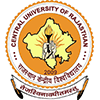
Exam Date: May 15, 2024

Result Date: Mar 22, 2024

Exam Date: Apr 04, 2024
Result Date: Apr 25, 2024

JEE Advanced
Exam Date: May 26, 2024
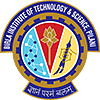
Exam Date: May 21, 2024

Exam Date: Mar 11, 2024

Exam Date: May 31, 2023
POST YOUR COMMENT
College offering course.

Indian Institute of Science, [IIS] Bangalore
Bangalore, Karnataka

Indian Institute of Science Education and Research, [IISER] Pune
Pune, Maharashtra

Indian Statistical Institute Bangalore
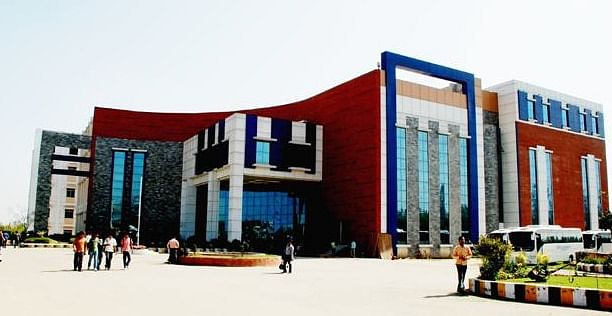
SRM Institute of Science & Technology, Ghaziabad Campus
Ghaziabad, Uttar Pradesh
Related Careers

Food Scientist
Thasleen Mohideen

Physiologist

Data Scientist
Savitha Subramanian

Data Analyst

Ethical Hacker

Psychiatrist
Related Articles

Career as a Forensic Scientist - Salary and Job Roles
Keerthana R
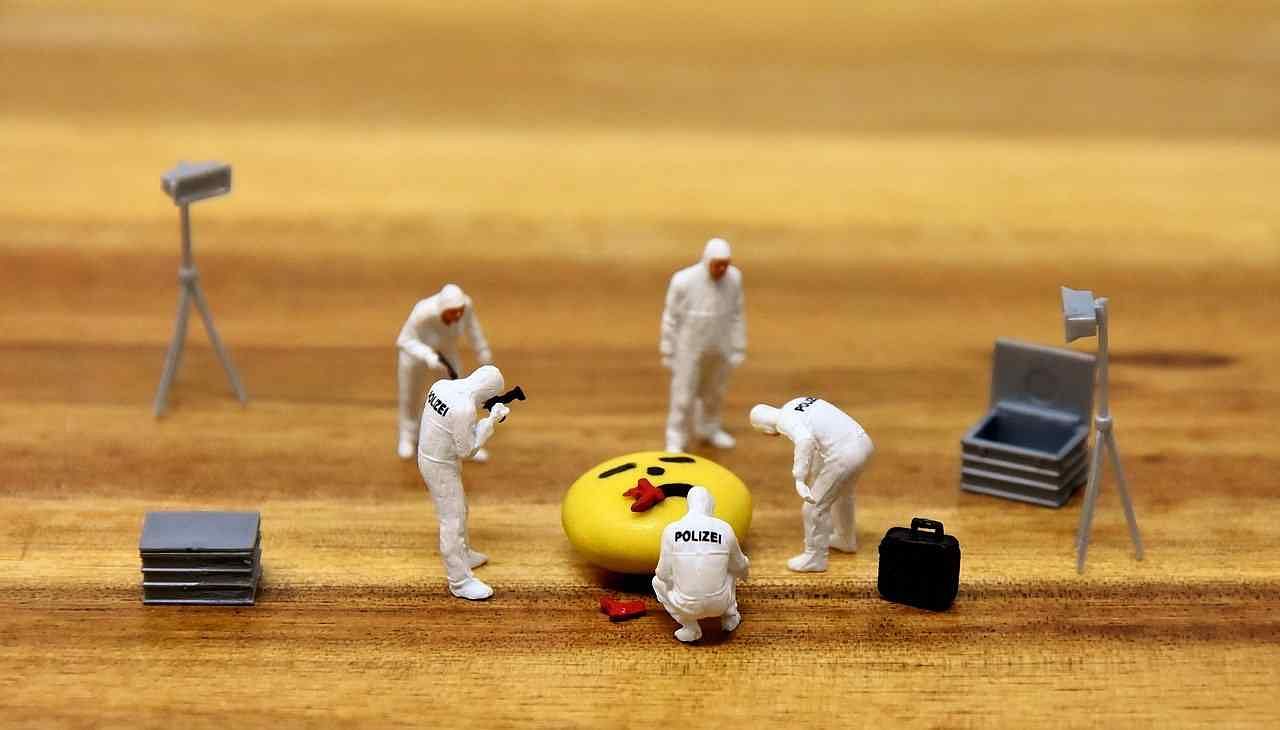
Forensic Science Courses After 12th: Eligibility, Job Scope, Top Colleges
Nishka Agarwal

Home Science Courses After 12th: Admission, Job Scope, Top Colleges
Saumya Tewari

Political Science Courses after 12th: Admission, Job Scope, Top Colleges

Top Computer Science Courses after 12th in 2023
Lisha Gupta

Data Science Courses after 12th: Eligibility, Admission, Career Scope

Actuarial Science Courses: Eligibility, Fees, Syllabus, Top Colleges
Get Free Scholarship worth 25000 INR
- भारत सरकार GOVERNMENT OF INDIA
- विज्ञान और प्रौद्योगिकी मंत्रालय MINISTRY OF SCIENCE AND TECHNOLOGY
- Screen Reader Access

Search form

विज्ञान एवं प्रौद्योगिकी विभाग

- Home >>
- Fellowship Opportunities for Researchers >>
Fellowship Opportunities for Researchers
Fellowship of ministry of science & technology(dst/dbt/csir(dsir)/serb).
1. Extra Mural Research Funding (Individual Centric)
Individual centric competitive mode of funding will be provided under the EMR funding schemes. SERB supports potential scientists for undertaking research in frontier areas of S&T in Life Sciences, Physical Sciences, Chemical Sciences, Engineering Sciences, Earth & Atmospheric Sciences & Mathematical Sciences.
2.Scheme for funding High Risk -High Reward Research
The Scheme for funding High Risk - High Reward Research aims at supporting proposals that are conceptually new and risky, and if successful, expected to have a paradigm shifting influence on the S&T. This may be in terms of formulating new hypothesis, or scientific breakthroughs which aid in emergence of new technologies.
3.Empowerment and Equity Opportunities for Excellence in Science
The scheme, Empowerment and Equity Opportunities for Excellence in Science (EMEQ) is aimed at providing research support to scientists belonging to the Scheduled Caste and Scheduled Tribe in undertaking research in newly emerging and frontier areas of science and engineering and thus to involve them in the National Science and Technology development process.
4.Start-Up Research Grant (Young Scientists)
Start-up grant for Young Scientists is restructured w.e.f. 1st September, 2015 into two new schemes: Early Career Research Award (ECRA), National Post-Doctoral Fellowship (NPDF)
5. J C Bose National Fellowship
Nominations are invited for the J C Bose National Fellowships. The fellowship is meant to recognize active scientists and engineers for their outstanding performance and contributions. The fellowships are scientist-specific and very selective.
6. Ramanujan Fellowship
The fellowship is meant for brilliant scientists and engineers from all over the world to take up scientific research positions in India, i.e. for those scientists who want to return to India from abroad. The fellowships are scientist-specific and very selective. The Ramanujan Fellows could work in any of the scientific institutions and universities in the country and they would be eligible for receiving regular research grants through the extramural funding schemes of various S&T agencies of the Government of India.
7.National Post Doctoral Fellowship
The SERB-National Post Doctoral Fellowship ( N-PDF) is aimed to identify motivated young researchers and provide them support for doing research in frontier areas of science and engineering. The fellows will work under a mentor, and it is hoped that this training will provide them a platform to develop as an independent researcher
8.Early Career Research Award
Early Career Research Award scheme aims to provide quick research support to the young researchers who are in their early career for pursuing exciting and innovative research in frontier areas of science and engineering.
9.SERB Overseas Postdoctoral Fellowship
SERB Overseas Postdoctoral fellowship (SERB-OPDF) aims to build national capacity in frontier areas of Science and Engineering, which are of interest to India by providing postdoctoral fellowship for a period of one year extendable to one more year subject to good performance. The applicant should have completed PhD degree in science and engineering not earlier than the preceding two years from recognized institutions in India. For researchers who are in regular employment, the 2 years� period may be relaxed. The Program admits candidates in *identified areas and sends them to top institutions around the globe, other than USA and also to institutions where internationally acclaimed scientists are working. The applicant should himself/herself correspond with the proposed host institution abroad for their postdoctoral work. He/she is required to produce evidence, in the form of a letter of acceptance from the host institution along with merits/uniqueness of the host institute in the proposed area.
10. CSIR Young Scientists Awards
11. Scheme for Young Scientists & Technologist (SYST)
12. IYBA Innovative Young Biotechnologist Award
13. Sponsored Research (RESPOND)
The Indian Space Research Organisation (ISRO) has evolved a programme through which financial support is provided for conducting research and development activities related to Space Science, Space Technology and Space Application to academia in India. This programme of Research Sponsored by ISRO is called RESPOND. In special cases research and development projects proposed by non-academic R & D laboratories can also be supported through this programme. The aim of RESPOND is to encourage quality research in areas of relevance to the Indian space programme.
14. Research Programmes and Projects - Ministry of Earth Sciences
15. Indo-U.S. Fellowship for Women in STEMM
Indo-U.S. Fellowship for Women in STEMM ( Science, Technology, Engineering, Mathematics and Medicine ) is aimed to provide opportunities to Indian Women Scientists, Engineers & Technologists to undertake international collaborative research in premier institutions in U.S.A, to enhance their research capacities and capabilities in global perspective. DST has launched the fellowship (WISTEMM)” jointly with Indo-U.S. Science and Technology Forum (IUSSTF).
Read more
16. 2019-2020 Fulbright-Kalam Climate Fellowship
In a September 2014 Joint Statement, the President of the United States of America and the Prime Minister of the Republic of India launched U.S.-India Climate Fellowship Program to build long-term capacity to address climate change related issues in both countries.
In pursuance of the Joint Statement, the Government of the United States of America and the Government of the Republic of India – desiring to promote further mutual understanding between the two peoples by a wider exchange of knowledge and professional talents – intend to partner to build long-term capacity in the United States and India by engaging scientific and technical research scholars from both countries related to climate research and education through the Fulbright-Kalam Climate Fellowship.
The United States-India Educational Foundation (USIEF) administers the Fulbright-Kalam Climate Fellowship on behalf of both the governments.
Research Awards to promising "Young Scientist" by various Organisation Public and Private
The Scheme provides Opportunities to Young Scientists for pursuing exciting and innovative research in frontier areas. The scheme is focused on young scientists & technologist who have adequate background and training in fields of science and technology and show inclination to undertake socially relevant action research projects. This is also to encourage academic institutions, national labs and other S&T institutions.
Related Organization
Miscellaneous.


Bright Educational Services TM
Bright Educational Services TM is the leading leading education consultant in India And Abroad
Guide to Becoming a Research Scientist | Eligibility and Career Opportunities

Many of us grow up dreaming of becoming a scientist. Watching sci-fi movies and reading about all of the incredible people in history creating such wonderful inventions that have changed the way humankind does things was incredibly fascinating to us. We have always fantasised the idea of dawning a lab coat and working away in our own little secret lab creating the next crazy invention. While scientists in real life aren’t as fantastical in nature, their job is nonetheless incredible and their contribution to society immense.
If you are someone who has a deep interest in a particular field and a passion to explore the depths of knowledge and dig up new discoveries then perhaps the job of a research scientist will be perfect for you. Not only is this job a highly paid and respected one but your name will also be etched into history , given you are able to make significant discoveries in your field of expertise. Overall this profession is for the bright minds who wish to make a change and have large aspirations for their life beyond simply earning money and retiring.
Eligibility Criteria
It is not necessary to get a degree from an Indian university to qualify to become a scientist. Students must study the subject and specialisation of their choosing in their respective field from India or overseas. Candidates can pursue PhD degrees in pertinent subjects from some of the best PhD Colleges in India and around the world in order to become scientists. University of Delhi, Banaras Hindu University, IIT Delhi, IIT Kharagpur, IIT Kanpur, IIT Mumbai, IISc Bangalore, and others are some of the top PhD colleges and universities in India that provide degrees in a variety of specialisations. Based on their field of study and area of expertise, scientists can be categorised into a number of different types, including biologists, physicists, astronomy scientists, etc.
Necessary Skills for a Scientist :
- Self Motivated.
- Adaptability.
- Passion for Experimentation.
- Good Management Skills.
- Critical Thinking.
- Good Problem Solving Skills.
- Team Worker.
The modern world runs on the accomplishments scientists have made in their continued research in various fi elds s uch as :
- Biomedical Engineering and Biophysics
- Cancer Biology
- Cell Biology
- Chemical Biology
- Chromosome Biology
- Clinical Research
- Computational Biology
- Developmental Biology
- Epidemiology
- Genetics and Genomics
- Health Disparities
- Microbiology and Infectious Diseases
- Molecular Biology and Biochemistry
- Molecular Pharmacology
- Neuroscience
- RNA Biology
- Social and Behavioral Sciences
- Stem Cell Biology
- Structural Biology
- Systems Biology
Apart from these there’s various other non-conventional fields where researchers are in incredible demand and your contribution may benefit thousands of human lives.
Role of a Research Scientist
Investigating gaps in scientific understanding is the responsibility of research scientists. They plan, create, and carry out investigative protocols and share their knowledge by publishing their findings in reputable books and documents. They lead data collection and interpretation, serve as co-chairs for joint research projects, and are responsible for securing adequate and pertinent funding to supplement finances. They also conduct internal research and presentations.
Research scientists operate in a variety of subjects, such as medicine, political science, computer science, and environmental science, and they conduct experiments and trials in laboratories. They design and carry out experiments that are the subject of reports and research articles. By documenting and evaluating the data, they keep track of their experiments while also collecting samples and conducting other kinds of field research. They demonstrate their processes and keep up with the most recent advances in science. A master’s degree in their area of study and prior publications in reputable journals are requirements for research scientists.
What duties are typical for work as research scientists?
- initiate, carry out, and manage validations for both novel and tried-and-true techniques.
- assist in leading outside teams developing product formulations.
- Reports, data, and batch records are written and reviewed.
- Review manufacturing costs, quality, and demand in collaboration with the team.
- Support new and younger team members as they navigate the lab.
- In a formal end report, compile a summary of all project efforts.
- Effectively communicate with your team, important partners, and stakeholders.
- Participate actively in a culture that values safe work practises.
- To ensure the greatest quality, review the data, data notebooks, logbooks, and reports.
- On client initiatives, exercise thought leadership and technical support.
- Create and carry out important experiments to meet programme objectives.
- able to manage and take part in a broad range of projects.
- Update the manager or department supervisor on all issues.
- Create code and test cases to verify new functionalities.
Career Scope and Salary
Aside from the added perks of becoming a research scientist, they also receive handsome salary packages from the get go. The average salary per annum for a research scientist in India starts from INR 8 lakh /-Y . Adding to this, with growth in years of experience, research scientists can level up their career and eventually become Senior Research Scientists as well as Adjunct Research Scientists and receive an equal rise in pay and benefits.
Get Admission In Your Dream College!

Enquire Now

- How To Become
- Career Development
- How to become research scientist in india

Are you fascinated by the world of science and have a deep curiosity to explore new frontiers of knowledge? Becoming a research scientist in India can be a fulfilling and rewarding career choice. Research scientists are at the forefront of scientific discoveries, conducting experiments, analyzing data, and contributing to advancements in various fields. In this article, I will provide you with a step-by-step guide on how to become a research scientist in India.
Educational Qualifications
Research experience, develop key skills, networking and collaboration, government and private research institutions.
2. Master's Degree: After completing your Bachelor's, it is advisable to pursue a Master's degree in a specialized area of your interest. This will provide you with in-depth knowledge and expertise in your chosen field.
3. Doctoral Degree: To establish yourself as a research scientist, it is crucial to obtain a Ph.D. in your area of specialization. A Ph.D. involves conducting original research, writing a dissertation, and defending it in front of a panel of experts.
2. Publish Research Papers: Publishing research papers in reputed scientific journals is a significant milestone in the career of a research scientist. Collaborate with your professors or mentors to contribute to ongoing research projects and publish your findings.
2. Problem-Solving Skills: In the field of research, you will encounter complex problems that require innovative solutions. Cultivate your problem-solving skills by challenging yourself with puzzles, brain teasers, and logical reasoning exercises.
3. Communication Skills: As a research scientist, you will need to present your findings to peers, write research papers, and collaborate with fellow scientists. Enhance your communication skills, both written and verbal, to effectively convey your ideas and discoveries.
2. Collaborate with Researchers: Collaborating with fellow researchers, both within India and internationally, can broaden your horizons and expose you to diverse perspectives. Seek opportunities to collaborate on research projects and publications.
2. IISc and IITs: The Indian Institute of Science (IISc) and the Indian Institutes of Technology (IITs) are renowned institutions that offer excellent research programs and opportunities. Explore the departments and research centers within these institutions.
3. Private Research Organizations: Apart from government institutions, several private research organizations in India provide avenues for research scientists. Some notable examples include the Tata Institute of Fundamental Research (TIFR) and the Bhabha Atomic Research Centre (BARC).
Becoming a research scientist in India requires dedication, perseverance, and a passion for scientific inquiry. Follow the educational path, gain research experience, develop key skills, and leverage networking opportunities to embark on a successful career in research. Remember, research scientists have the power to shape the future through their discoveries and contributions to society.
1. Can I become a research scientist with a Bachelor's degree?
A Bachelor's degree is a stepping stone towards a career in research science. However, to establish yourself as a research scientist, it is advisable to pursue a Master's and Ph.D. degree in a specialized field.
2. How long does it take to become a research scientist in India?
The duration to become a research scientist in India can vary. It typically takes around 5-7 years to complete a Bachelor's and Master's degree and another 3-5 years to obtain a Ph.D. However, the timeline may vary depending on individual circumstances and research progress.
3. What are some funding options for research scientists in India?
Several funding agencies in India provide scholarships, fellowships, and grants to support research scientists. Organizations like CSIR, UGC, DBT, and DST offer various funding opportunities for aspiring researchers.
4. Can I pursue research in interdisciplinary fields?
Absolutely! Interdisciplinary research is gaining prominence, and many institutions encourage research in cross-disciplinary areas. Explore opportunities to collaborate with experts from different fields and contribute to cutting-edge research.
5. Is it necessary to publish research papers to become a research scientist?
While publishing research papers is not mandatory, it is highly recommended. Publishing papers adds credibility to your work, helps disseminate knowledge, and opens doors for collaboration and recognition in the scientific community.
Si quieres más información puedes revisar otros artículos en la categoría Career Development .
Artículos que te puedes interesar
How to become a human resource manager in india
How to become a principal in india
How to become career oriented in india
How to become a chro in india
How to become a runway model at 14 in india
How to become a rat in india
Deja una respuesta Cancelar la respuesta
Tu dirección de correo electrónico no será publicada. Los campos obligatorios están marcados con *
Guarda mi nombre, correo electrónico y web en este navegador para la próxima vez que comente.
En este sitio web usamos cookies. Es preciso que aceptes para poder continuar navegando. Leer Más
- JEE Main 2024
- MHT CET 2024
- JEE Advanced 2024
- BITSAT 2024
- View All Engineering Exams
- Colleges Accepting B.Tech Applications
- Top Engineering Colleges in India
- Engineering Colleges in India
- Engineering Colleges in Tamil Nadu
- Engineering Colleges Accepting JEE Main
- Top IITs in India
- Top NITs in India
- Top IIITs in India
- JEE Main College Predictor
- JEE Main Rank Predictor
- MHT CET College Predictor
- AP EAMCET College Predictor
- GATE College Predictor
- KCET College Predictor
- JEE Advanced College Predictor
- View All College Predictors
- JEE Main Question Paper
- JEE Main Cutoff
- JEE Main Answer Key
- JEE Main Result
- Download E-Books and Sample Papers
- Compare Colleges
- B.Tech College Applications
- JEE Advanced Registration
Quick links
- Mechanical Engineering
- Civil Engineering
- Aeronautical Engineering
- Information Technology
- Electronic Engineering
B.Tech Companion Use Now Your one-stop Counselling package for JEE Main, JEE Advanced and BITSAT
- MAH MBA CET Exam
- View All Management Exams
Colleges & Courses
- MBA College Admissions
- MBA Colleges in India
- Top IIMs Colleges in India
- Top Online MBA Colleges in India
- MBA Colleges Accepting XAT Score
- BBA Colleges in India
- XAT College Predictor 2024
- SNAP College Predictor
- NMAT College Predictor
- MAT College Predictor 2024
- CMAT College Predictor 2024
- CAT Percentile Predictor 2023
- CAT 2023 College Predictor
- CMAT 2024 Registration
- TS ICET 2024 Registration
- CMAT Exam Date 2024
- MAH MBA CET Cutoff 2024
- Download Helpful Ebooks
- List of Popular Branches
- QnA - Get answers to your doubts
- IIM Fees Structure
- LSAT India 2024
- Colleges Accepting Admissions
- Top Law Colleges in India
- Law College Accepting CLAT Score
- List of Law Colleges in India
- Top Law Colleges in Delhi
- Top Law Collages in Indore
- Top Law Colleges in Chandigarh
- Top Law Collages in Lucknow
Predictors & E-Books
- CLAT College Predictor
- MHCET Law ( 5 Year L.L.B) College Predictor
- AILET College Predictor
- Sample Papers
- Compare Law Collages
- Careers360 Youtube Channel
- CLAT Syllabus 2025
- CLAT Previous Year Question Paper
- AIBE 18 Result 2023
Engineering Preparation
- Knockout JEE Main 2024
- Test Series JEE Main 2024
- JEE Main 2024 Rank Booster
Medical Preparation
- Knockout NEET 2024
- Test Series NEET 2024
- Rank Booster NEET 2024
Online Courses
- JEE Main One Month Course
- NEET One Month Course
- IBSAT Free Mock Tests
- IIT JEE Foundation Course
- Knockout BITSAT 2024
- Career Guidance Tool
- IPU CET BJMC
- JMI Mass Communication Entrance Exam
- IIMC Entrance Exam
- Media & Journalism colleges in Delhi
- Media & Journalism colleges in Bangalore
- Media & Journalism colleges in Mumbai
- List of Media & Journalism Colleges in India
- Free Ebooks
- Free Sample Papers
- NID DAT Exam
- Pearl Academy Exam
- Design Colleges in India
- Fashion Design Colleges in Bangalore
- Fashion Design Colleges in Mumbai
- Fashion Design Colleges in Pune
- Fashion Design Colleges in Delhi
- Fashion Design Colleges in Hyderabad
- Fashion Design Colleges in India
- Top Design Colleges in India
Animation Courses
- Animation Courses in India
- Animation Courses in Bangalore
- Animation Courses in Mumbai
- Animation Courses in Pune
- Animation Courses in Chennai
- Animation Courses in Hyderabad
- Free Design E-books
- List of Branches
- Careers360 Youtube channel
- NIFT College Predictor
- UCEED College Predictor
- NID DAT College Predictor
- AIIMS Nursing
- Top Medical Colleges in India
- Top Medical Colleges in India accepting NEET Score
- Medical Colleges accepting NEET
- List of Medical Colleges in India
- List of AIIMS Colleges In India
- Medical Colleges in Maharashtra
- Medical Colleges in India Accepting NEET PG
- NEET College Predictor
- NEET PG College Predictor
- NEET MDS College Predictor
- DNB CET College Predictor
- DNB PDCET College Predictor
- NEET Application Form 2024
- NEET PG Application Form 2024
- NEET Cut off
- NEET Online Preparation
- Download Helpful E-books
NEET Companion Use Now Your one-stop Counselling package for NEET, AIIMS and JIPMER
- CUET PG 2024
- IGNOU B.Ed Admission 2024
- DU Admission
- UP B.Ed JEE 2024
- DDU Entrance Exam
- IIT JAM 2024
- IGNOU Online Admission 2024
- Universities in India
- Top Universities in India 2024
- Top Colleges in India
- Top Universities in Uttar Pradesh 2024
- Top Universities in Bihar
- Top Universities in Madhya Pradesh 2024
- Top Universities in Tamil Nadu 2024
- Central Universities in India
Upcoming Events
- CUET PG Admit Card 2024
- IGNOU Date Sheet
- CUET Mock Test 2024
- CUET Application Form 2024
- CUET PG Syllabus 2024
- CUET Participating Universities 2024
- CUET Previous Year Question Paper
- CUET Syllabus 2024 for Science Students
- E-Books and Sample Papers
- CUET Exam Pattern 2024
- CUET Exam Date 2024
- CUET Syllabus 2024
- IGNOU Exam Form 2024
- IGNOU Result
- CUET PG Courses 2024
- IT Colleges in Tamil Nadu
- IT Colleges in Uttar Pradesh
- MCA Colleges in India
- BCA Colleges in India
Quick Links
- Information Technology Courses
- Programming Courses
- Web Development Courses
- Data Analytics Courses
- Big Data Analytics Courses
Top Streams
- IT & Software Certification Courses
- Engineering and Architecture Certification Courses
- Programming And Development Certification Courses
- Business and Management Certification Courses
- Marketing Certification Courses
- Health and Fitness Certification Courses
- Design Certification Courses
Specializations
- Digital Marketing Certification Courses
- Cyber Security Certification Courses
- Artificial Intelligence Certification Courses
- Business Analytics Certification Courses
- Data Science Certification Courses
- Cloud Computing Certification Courses
- Machine Learning Certification Courses
- View All Certification Courses
- UG Degree Courses
- PG Degree Courses
- Short Term Courses
- Free Courses
- Online Degrees and Diplomas
- Compare Courses
Top Providers
- Coursera Courses
- Udemy Courses
- Edx Courses
- Swayam Courses
- upGrad Courses
- Simplilearn Courses
- Great Learning Courses
- NCHMCT JEE 2024
- Mah BHMCT CET
- Top Hotel Management Colleges in Delhi
- Top Hotel Management Colleges in Hyderabad
- Top Hotel Management Colleges in Mumbai
- Top Hotel Management Colleges in Tamil Nadu
- Top Hotel Management Colleges in Maharashtra
- B.Sc Hotel Management
- Hotel Management
- Diploma in Hotel Management and Catering Technology
Diploma Colleges
- Top Diploma Colleges in Maharashtra
- RUHS Pharmacy Admission Test
- Top Pharmacy Colleges in India
- Pharmacy Colleges in Pune
- Pharmacy Colleges in Mumbai
- Colleges Accepting GPAT Score
- Pharmacy Colleges in Lucknow
- List of Pharmacy Colleges in Nagpur
- GPAT Result
- GPAT 2024 Admit Card
- GPAT Question Papers
- CA Intermediate
- CA Foundation
- CS Executive
- CS Professional
- Difference between CA and CS
- Difference between CA and CMA
- CA Full form
- CMA Full form
- CS Full form
- CA Salary In India
Top Courses & Careers
- Bachelor of Commerce (B.Com)
- Master of Commerce (M.Com)
- Company Secretary
- Cost Accountant
- Charted Accountant
- Credit Manager
- Financial Advisor
- Top Commerce Colleges in India
- Top Government Commerce Colleges in India
- Top Private Commerce Colleges in India
- Top M.Com Colleges in Mumbai
- Top B.Com Colleges in India
- UPSC IAS 2024
- SSC CGL 2024
- IBPS RRB 2024
- NDA Application Form 2024
- UPSC IAS Application Form 2024
- CDS Application Form 2024
- CTET Admit card 2024
- HP TET Result 2023
- SSC GD Constable Admit Card 2024
- UPTET Notification 2024
- SBI Clerk Result 2024
- Previous Year Sample Papers
- Free Competition E-books
- Sarkari Result
- QnA- Get your doubts answered
- UPSC Previous Year Sample Papers
- CTET Previous Year Sample Papers
- SBI Clerk Previous Year Sample Papers
- NDA Previous Year Sample Papers
Other Exams
- SSC CHSL 2024
- UP PCS 2024
- UGC NET 2024
- RRB NTPC 2024
- IBPS PO 2024
- IBPS Clerk 2024
- IBPS SO 2024
- Top University in USA
- Top University in Canada
- Top University in Ireland
- Top Universities in UK
- Top Universities in Australia
- Best MBA Colleges in Abroad
- Business Management Studies Colleges
Top Countries
- Study in USA
- Study in UK
- Study in Canada
- Study in Australia
- Study in Ireland
- Study in Germany
- Study in China
- Study in Europe
Student Visas
- Student Visa Canada
- Student Visa UK
- Student Visa USA
- Student Visa Australia
- Student Visa Germany
- Student Visa New Zealand
- Student Visa Ireland
- CBSE Class 10th
- CBSE Class 12th
- UP Board 10th
- UP Board 12th
- Bihar Board 10th
- Bihar Board 12th
- Top Schools in India
- Top Schools in Delhi
- Top Schools in Mumbai
- Top Schools in Chennai
- Top Schools in Hyderabad
- Top Schools in Kolkata
- Top Schools in Pune
- Top Schools in Bangalore
Products & Resources
- JEE Main Knockout April
- NCERT Notes
- NCERT Syllabus
- NCERT Books
- RD Sharma Solutions
- Navodaya Vidyalaya Admission 2024-25
- NCERT Solutions
- NCERT Solutions for Class 12
- NCERT Solutions for Class 11
- NCERT solutions for Class 10
- NCERT solutions for Class 9
- NCERT solutions for Class 8
- NCERT Solutions for Class 7
- NCHMCT JEE 2022
- Christ University BHM
- Top Hotel Management Colleges in India
- Top Hospitality & Tourism Colleges in Delhi
- Top Government Hospitality & Tourism Colleges in Hyderabad
- Top Hospitality & Tourism Colleges in Mumbai
- NCHM JEE College Predictor
- NEET Companion Buy Now
- B.Tech Companion Buy Now

Popular Searches
- CAT Percentile Predictor
- CAT Score Vs Percentile

How to Become a Researcher
- Career Types
- Work Environment
- How to become
- Skills and Traits
- Certifications/Internship
- Career Progression
Who is a Researcher?
“No research without action, no action without research” ~ Kurt Lewin
A Researcher is a professional who uses various methodologies to conduct research, collating sources such as newspapers, internet searchers, journals and other publications. In order to investigate topics, find solutions to challenges, and forecast trends, researchers gather, organise, analyse, and evaluate opinions and information.
Most scientists take public opinion into account. Social scientists measure how the general public feels about various social concerns, services, political candidates, groups, and personalities. Scientific researchers may serve various roles such as market research specialist, research scientist, reporter and financial analyst. In this article, we will discuss how to become a Researcher in India and how to become a researcher after 12th.

Researcher in a Nutshell
A Researcher is a professional who is responsible for collecting data and information by reviewing the literature and conducting experiments and surveys. He or she uses various methodological processes to provide accurate data and information that is utilised by academicians and other industry professionals. Here, we will discuss what is a researcher, the researcher's salary, types of researchers.
Quick Facts for Researcher
Technology, Agriculture, Finance, Healthcare
Male, Female, Others
A career as a Researcher is suitable for everyone regardless of gender. A researcher's career is not gender-based. It demands specific skills and academic eligibility to opt for a researcher’s role.
A Researcher career is suitable for specially-abled students. There are numerous desk jobs where researchers are required for data collection, analysis and interpretation from various e-resources. They may also work on spreadsheets to record and analyse data.
Table of Contents for Researcher
What is the role of researcher.
Are you thinking a Researcher is a good career? or how to become a researcher without a degree? then in this article, we will discuss all these. Researchers are academic professionals who conduct research and write academic theses. They may work in other industries as well besides academics as it is a research-based career. The work responsibilities of a researcher may vary depending on their industry. Most Researchers working in social science-related fields measure public opinions. These researchers are responsible for gauging public opinion concerning social issues, political campaigns, services, parties and campaigns.
Conduct Survey
The role of Researcher is to conduct a survey to know the public's opinion on a social issue, political campaigns, parties and personal. He or she is required to design and administer surveys to analyse market trends. The surveys conducted by Researchers are most likely to influence policies and decisions.
Data Analyses
Researchers are required to analyse and classify data in terms of responses and inclinations and compare studies. They may look for patterns in various data on the same subject to predict future trends.
Prepare Questionnaires
The role of Researcher is required to prepare an interview or questionnaire to know the opinion of the participatory audience in the survey. The questions framed in the questionnaires must be relevant and drafted in an easily understandable language.
Read Literature
A Researcher is required to read numerous forms of literature such as articles published in newspapers, magazines, books and information from e-resources. In order to collect relevant information about the subject and gather data, they are required to go through numerous resources.
Conduct Experiment
Researchers involved in the field of agriculture, biology, biochemistry, chemistry or physics are required to conduct experiments and record their findings. He or she is required to measure each chemical or substance used in the experiment including temperature and document it with the conclusion and result.
Types of a Researcher
There are types of researcher or researcher career options based on various industries. We have provided below details of the major types of researcher or researcher career options.
Actuary : An actuary is a professional who carefully drafts insurance policies. He or she helps in solving problems related to financial risks such as pension plans, health insurance or life insurance. An actuary predicts the probability of future outcomes of the occurrence of a contingent event.
Equity Research Analyst : An equity research analyst is a professional who works in the securities industry. He or she is responsible for producing research reports, recommendations, and projections and predicting the risks involved in future investment concerning companies and stocks. An equity research analyst
Journalist : A journalist is a professional responsible for collecting newsworthy information, drafting it to answer 5W and 1H, and recording or capturing visuals and audio for dissemination to broadcast and print media.
Statistician : A statistician is a professional who manages experiments and conducts surveys. He or she stays involved in analysing data and finding patterns to predict future trends. A statistician provides advice based on his or her analyses to make a strategy. Read further to know more about how to become a researcher in India and how to become a researcher in biology.
What is the workplace/work environment of Researcher like?
A researcher's work environment may vary depending on various factors. Those scientific researchers who perform offline surveys may be required to travel to other locations.
Researchers involved in the finance industry usually are required to perform work responsibilities in an office environment. They are most likely to perform research online. Other businesses may also involve conducting surveys through google forms. Researchers involved in the field of science are usually required to perform tasks in a laboratory setting.
Does Researcher require travelling?
Travelling depends on the scientific researcher's work responsibilities and the industry. Several jobs require researchers to travel to different locations and conduct surveys and polls. While other jobs demand them to work indoors in office environments and laboratory settings.
Employment Shifts
A researcher usually works on a full-time basis. He or she is required to work on a full-time basis. A scientific researcher may conduct a survey online or on-call in the work-from-home or remote work environment.
Employment Nature
Contractual, permanent.
A researcher may find employment opportunities on both contractual as well as permanent basis. The scientific researcher may get specific research projects on a contractual basis or may work on a permanent basis where he or she gets varying research assignments.
Laboratory, Office Setting
A researcher may work in an office environment or lab setting. The scientific researcher may also be required to travel to conduct offline surveys.
Presence in Geographical Area
Semi-urban, urban.
A researcher finds alluring opportunities in urban and semi-urban areas. There are also research-based opportunities provided in rural areas. The headquarters of research organisations are usually located in urban areas. But, the work responsibilities may demand conducting research in a far away remote location where the human population resides or not.
Time Pressure
Research projects have a specific deadline. Researchers are required to work under extreme time pressure.
Overtime Details
Researchers are often required to work extended hours. The scientific researchers involved in chemistry or biology-relevant industries are required to perform experiments and conduct studies in a specific temperature, climate and time period. The same is applied to the social studies field, researchers are required to conduct surveys during election campaigns.
Weekly Hours of Work
Min 35 hours.
A researcher's work hours vary depending on the employment setting. The scientific researcher may work 42 hours per week in several organisations and other organisations may require them to work only 35 hours per week.
How to become a Researcher?
Steps to become a researcher.
If you are interested in an investigation, want to find solutions to challenges, and want to analyse and evaluate opinions and information, then a career as a researcher is the best career option for you. Below, we have listed the steps for how to become a researcher in India or how to become a researcher after 12th
Identify & Gain Relevant Skills
Courses to pursue, pursue certification courses, explore internship opportunities, build an attractive resume, apply for the job, begin your career.
If you want to pursue a career as a researcher, then you must possess certain skills. As a researcher, you must have both soft and hard skills to enhance your career growth. Below, we have mentioned some of the skills required for researchers in India.
Some of the soft skills required for researchers in India are communication, attention to detail, problem-solving, time management, note-taking, patience, creativity and searching for information.
Self Management
Interpersonal skills
Investigating
Organisational skills
Some of the hard skills required for the researcher are data management, subject knowledge, IT skills, data analysis, data interpretation and data analysis.
Data analysis
Data Interpretation
Data management skills
Knowledge of Subject
If you want to pursue a career as a researcher, you must have a bachelor’s degree in any of the fields. You need to complete your 10+2 in any stream from a recognised board in India.
If you want to pursue research medicine, biology, or chemistry, you need a degree in biochemistry, biology, or pharmacology, or if you are interested in a career as an information research scientist, then a degree in computer science or information technology is suitable. To work as a market researcher, you need to pursue a marketing degree specialising in research practices and data analysis.
To opt for a bachelor's degree programme, you need to appear for an entrance examination after completing your 10+2 education. After completing your bachelor’s degree, you can opt for a master’s degree programme and a Ph.D. programme to pursue a career as a researcher in India. Below, we have mentioned the entrance examinations, bachelor’s degrees, and master’s degree programme.
Entrance Examination
Bachelor's Degree Programmes
Master’s Degree Programme
Apart from formal education, you can opt for certification courses. Pursuing the certification course will help you gain additional knowledge and skills that can enhance your career. Below, we have listed some of the certification courses for researchers in India.
If you want to develop your skills and practical knowledge and gain industry experience, then you must pursue an internship. After completing your formal education in a respective field, you can apply for internships in various sectors, such as environmental agencies, research institutes, food companies, universities, government laboratories, and chemical companies. You can upload your resume to various internship platforms like Internshala, Twenty19 and others or you can connect directly to popular laboratories and research centres.
Once you are done with your certification course, you need to build an attractive resume which will have all of your details including your educational background, internships, experience, and skills, in a particular field or specialisation.
After completing your formal education and internship, the next step is to find a full-time job position and upload your resume on job sites such as Monster, Indeed, and Naukri. You can also apply for the job directly at some of the laboratories, research institutes, or universities in an interested field.
This is the most important step for how to become a researcher in India. Once you have attended and cleared the interviews and received the offer letters, select the best one that you are interested in and start your career.
What are the skills and qualities required to become a/an Researcher?
- Communication skills
- Research skills
- An eye for detail
- Project management
Are you still wondering how to become a researcher in India? then before we answer that, you must know a career as a Researcher demands numerous skill sets to remain efficient and productive. We have mentioned below major Researcher skills. Here, we have discussed how to become a researcher in India.
Research Skills: A career as an associate researcher demands specific research skills. He or she is required to study literature, conduct surveys, develop questionnaires, collect data and perform other tasks to research and gather accurate information.
Eye to Details: Aspirants are required to possess a strong eye for detail to become a researcher. A Researcher is required to be attentive to record each and every detail while conducting a survey or experiment. He or she is responsible for providing accurate data.
Communication: The researcher's job requires strong communication skills. He or she is required to communicate with a group of people to effectively conduct surveys without being biased and get accurate data or information.
Project Management: Project management is a crucial skill for a researcher. He or she is required to understand the requirements of research and its goal. He or she must look at all the aspects of the project and manage it effectively.
Leadership Skills: An associate researcher must be able to take the leadership role and assign responsibilities to juniors. He or she must take the initiative and responsibility for the successful completion of the research project with accurate findings.
Which certifications and internships can be helpful in becoming Researcher?
We have listed below certification courses for aspirants who want to become researchers. These researcher courses help individuals to upgrade their skills and knowledge.
Internship Availability
A research internship involves conducting research, implementation of ideas, data compilation and writing papers. There is an opportunity for research interns to turn it into a full-time job with their skills, performance and dedication towards work.
Career Path Progression for Researcher
Junior Researcher: A junior researcher generally possesses an experience of 1 to 4 years. A junior researcher may provide assistance to a senior researcher and perform documentation work.
Senior Researcher: A senior researcher possesses a work experience of 10 to 19 years or more. A senior researcher is responsible for analysing quantitative and qualitative data. He or she conducts research experiments.
Researcher Jobs and Salaries
Junior researcher.
Contractual/Permanent
- Average Salary 46776
Job Description
A junior researcher work responsibilities may involve preparing research reports and papers. He or she reviews drafts and changes direction whenever it is required. He or she works under the supervision of a senior researcher.
Salary Description
The salary of a researcher varies depending on his or her skills and experience. The average salary of a junior researcher is Rs. 561,310 per annum.
Senior Researcher
- Average Salary 145833
A senior researcher having a PhD degree may perform his or her own independent research without being associated with any firm or institution. He or she works with internal and external stakeholders. A senior researcher is responsible for preparing research reports and papers.
The salary of a researcher varies depending on his or her skills, role and work experience. The average salary of a senior researcher is Rs. 1,750,000 per annum.
What is the job outlook for Researcher?
There are constantly growing job opportunities for research careers. Industries are expanding and penetrating the market with the development of new products that are more reliable than older ones. Everything is constantly changing and upgrading with the advancement of technology and the requirements of human needs. Research is crucial to bring effective products and services to the market that can divert the attention of audiences with its high efficiency and effectiveness. Research opportunities are vast in all the fields of science and technology, finance and social sciences. Scroll down to know how to become a researcher in India.
Frequently Asked Questions for Researcher
Que. what is the average salary of a researcher in india.
The average salary of a research scientist in India is Rs. 901,825 per annum, according to payscale.com.
Que. What is the required qualification to perform independent research?
A Ph.D. (Doctor of Philosophy) is crucial to conduct independent research without being associated with any research organisation or firm.
Que. What is the average fee for a Ph.D. in India?
The fee for the Ph.D. course varies from institution to institution. The average Ph.D. fee ranges from Rs. 400,000 to Rs. 15,00,000 in India.
Que. What are various research based job roles?
The various research related job roles are listed below:
Equity Research Analyst
Financial Analyst
Que. What is the minimum required qualification to become a researcher?
The minimum required qualification to become a researcher is the successful completion of any undergraduate degree programme in relevant subjects.
Que. What are the qualifications for a researcher?
The qualifications required for a researcher is completing an undergraduate degree in a relevant field in which you want to do research. Then opt for a master’s and a PhD degree to become a researcher.
Que. How do I start my career in research?
You are required to complete a bachelor's degree and then opt for a master's degree or PhD as it is research-based, it is a must that you opt for a PhD. After your education, you can opt for an internship for experience.
Que. Is research a good career?
Yes, a career as a researcher is a good career, if you are interested in in-depth research, finding information and investigating things then you must definitely go for research career.
Que. Is it hard to be a researcher?
Yes, the work of the research is a little harder as you need to sit for hours and hours to research and find information by doing in-depth research.
You might also be interested in
Data analyst job description & roles and responsibil....
Find out about the job description, roles, and responsibilities of Data Analyst, along ...
Teacher Job Description & Roles and Responsibilities
Find out about the job description, roles and responsibilities of teacher, along with t...
Business Development Manager Job Description & Roles...
Find out about the job description, roles and responsibilities of business development ...
Retail Manager Job Description & Roles and Responsib...
Find out about the job description, roles and responsibilities of retail manager, along...
Production Manager Job Description & Roles and Respo...
Find out about the job description, roles and responsibilities of production manager, a...
Financial Analyst Job Description & Roles and Respon...
Find out about the job description, roles and responsibilities of financial analyst, al...
Content Writer Job Description & Roles and Responsib...
Find out about the job description, roles and responsibilities of content writer, along...
Accountant Job Description & Roles and Responsibilities
Find out about the job description, roles and responsibilities of accountant, along wit...
Business Analyst Job Description & Roles and Respons...
Find out about the job description, roles and responsibilities of business analyst, alo...
Career Options for Maths Students: UG & PG Degree Co...
Check out the best Career Options for Maths Students. The article majorly describes the...
Marketing Executive Job Description & Roles and Resp...
Find out about the job description, roles, and responsibilities of Marketing Executives...
High Salary Government Jobs After 12th - Check Eligi...
The following article will give you insights into some of the best high salary governme...
Loco Pilot Salary in India - Per Month, After 10 Yea...
Learn about Loco Pilot Salary in India. Know more details like loco pilot salary per mo...
Merchant Navy Salary in India - After 12th, Per Mont...
Learn about Merchant Navy Salary in India - Check the Salary of Merchant navy after 12t...
Top 10 Highest Paid Jobs in India in Commerce Field ...
Find out the Top 10 Highest Paid Jobs in India in Commerce Field. Check what are the sk...
Best Career Options After 12th PCM For Girl - Eligib...
Career options after 12th PCM - this article gives an insight into what are the best ca...
Part time Jobs After 12th Commerce - Expected Salary...
Get information on Part-time Jobs After 12th Commerce. The article also gives informati...
Career Options After 12th Commerce with Maths
Career options after 12th Commerce with Maths - This article will discuss the best care...
How to become a Medical Representative
Know How to become a Medical Representative. Check what are the skills, educational qua...
Career Options After BTech
Check out the best Career Options After BTech. Find what are the skills, job roles, edu...
Top 6 Highest Paying Jobs in Commerce Without Math
Find out the Top 6 Highest Paying Jobs in Commerce Without Math. Read complete article ...
Engineer Salary in India - Per Month, Top Cities, Co...
Learn about Engineer Salary in India. The article also gives information on salary base...
How to Become an IT Consultant - Courses, Jobs, Aver...
Learn How to Become an IT Consultant. Check IT courses, Job, Salary and more details here.
How to Work in Information Technology
Learn How to Work in Information Technology. What are the education qualification skill...
Software Developer Salary in India - Per Month, Base...
Software Developer Salary in India - Check the salary of a software developer per month...
Career Scope After B.Pharma and M.Pharma
The article gives information on Career scope After B Pharma & M Pharma including avera...
How To Study Pharmacy Abroad
Learn How To Study Pharmacy Abroad. Check what are educational qualification, skills re...
Career Options After 12th Arts - Courses With High...
Check out the best career options after 12th arts with highest salary.
Career Options in Law in India - Average Salary, Edu...
Learn about some of the best careers option after law and average salary. see what educ...
Different Types of Jobs in Information Technology
Check out the Different Types of Jobs in Information Technology including skills, quali...
HR Salary in India (Fresher & Experienced) - How to ...
Check out the HR salary in India. Know what are the skills, education qualification req...
Low Risk Careers in Engineering Domain in the Age of...
Check the careers that are low risk careers in automation or what can be the benefits o...
Top Highest Paying Engineering Jobs - Skills, Educat...
Find out the Top Highest Paying Engineering Jobs. Check what are the skills, educationa...
MBA in Pharmaceutical Management
Do MBA in Pharmaceutical Management? Know the educational qualification, skills, roles ...
How to become an Information Technology Manager: Ski...
Know How to become an Information Technology Manager. Check out the skills, education q...
Low Risk Careers in Hospitality, Travel and Tourism ...
Check the Low risk Careers list in Hospitality, Travel and Tourism industry in the Age ...
Types of Pharmacy Courses After 12th
Check what are the types of Pharmacy Courses After 12th. Know the educational qualifica...
Best Career Option In Pharma Industry For Life Science
Learn about the best Career Options In Pharma Industry For Life Science. Check out the ...
Web Designer Salary in India (For Freshers & Experie...
Learn about the web designer average salary, job profiles, skills required, education q...
Career Options After MBA in Marketing: Highest Payin...
Find out the best Career Options After MBA in Marketing. Check what are the education q...
Top Highest Paying Tech Jobs: Skills, Average Salary
Find out the Top Highest Paying Tech Jobs in India for fresher and experience. Check wh...
SEO Salary in India: SEO Manager, SEO Executive, SEO...
Learn about the SEO Salary in India. Find what are the skills, educational qualificatio...
IoT Engineer Salary in India
Check out the IoT Engineer Salary in India. Find what is role and responsibilities, sal...
Data Analyst Salary in India for Fresher & Experienced
The article gives insights on Data Analyst Salary in India. The article also gives inf...
Business Analyst Salary in India for Fresher & Exper...
Learn about the Business Analyst Salary in India for Fresher and Experienced. Find out ...
Career Options in Sociology: 9 Top Career Opportunit...
Find out the Career Options in Sociology. Check what are the educational qualification,...
Career Options After MBA: Qualification, Jobs, Avg. ...
Learn about the various Career Options After MBA. The article also gives information on...
Top 10 Engineering Jobs - Highest Paying Jobs In India
Check out some of the most popular engineering jobs in India. Check what are the qualif...
Career Outlook for Full Stack Developers
The article gives a brief Career Outlook for Full Stack Developers. The article also li...
5 Steps To Finding The Right Career For You
Learn all about useful tips to help you identify the skills you have and the training y...
Low Risk Career in Medical Domain in the Era of Arti...
The article gives information on some of the low-risk career options in the medicine fi...
Demanding Careers in Construction Industry - Jobs, S...
Learn all about some of the demanding careers in the construction Industry. The article...
What can I do with a Pharmacy Degree
Know what to do after getting a degree in pharmacy. The article gives information on jo...
Top Remote Jobs - List of Best Work From Home Companies
Check out the best remote jobs available in India. The article also gives information o...
Popular Careers in Management in India - Average Salary
Learn all about various types of managers that come under management , their salaries a...
Big Data Engineer Salary - How Much Can You Expect A...
The article gives information on salaries of Big Data Engineers in India. The article a...
Social Media Marketing Salary in India: SEO Manager ...
Learn about Social Media Marketing Salary in India. The article also gives information ...
Reasons to Pursue Information Technology Careers
Check out some reasons why you should pursue careers in information technology. Know the
Average Business Management Salary in India [For Fre...
Find out the Average Business Management Salary in India for Fresher and Experienced. C...
Best Paying Jobs in Information Technology
Get brief information on some of the best paying Jobs in IT. The article also gives inf...
Product Designer Salary in India [For Freshers & Exp...
Find out the Product Designer Salary in India for Fresher and Experienced. Check what a...
Doctor Salary in India - Per Month, Specialisation, ...
Air hostess salary in india - based on company & roles.
Air Hostess Salary In India - Air hostesses are also known as flight attendants or stew...
Aeronautical Engineer Salary in India - Per Month, E...
Aeronautical Engineer Salary in India - Aeronautical engineers design and construct aer...
Top 5 Tech Careers Of The Future
Check out the Top 5 Tech Careers Of The Future. Know the careers options, skills, educa...
Top 5 Highest Paid Freelancing Jobs in India
The article gives information on 5 Highest Paid Freelancing Jobs in India. Check out th...
Site Reliability Engineer: Job Responsibilities, Sal...
Learn all about Site Reliability Engineer's job roles and responsibilities. The article...
How to Become Frontend Developer - Skills, Education...
Find How to become Frontend Developer in India. Check what are the skills, educational ...
Management Consultant Salary in India
Check out the Management Consultant Salary in India. Check education qualification, ski...
Top 7 Career Options in Law In India: Job Opportunit...
Find out the Top 7 Career Options in Law In India. Check out the job opportunities, ski...
Top Career Options in Law in India
Find out the Top Career Options in Law including job roles and their salary in India, R...
How to Become Freelance Designer
Check How to become Freelance Designer. Check out the steps to become freelance designer.
Popular IT Careers in India - Highest Paying Jobs
Check out the Popular IT Careers in India. See what are the highest paying jobs, educat...
What Can You Do with an IT Degree
What Can You Do with an IT Degree? Know what are the skills, education qualification re...
Python Developer Salary in India: Skills, Job Roles
Find out the Python Developer Salary in India. Check what are the educational qualifica...
How to Become a PHP Developer - Skills, Education, S...
Know How to become a PHP Developer in India. See what are the skills, educational quali...
Average Product Manager Salary in India for Fresher ...
Learn all about the Average Product Manager Salary in India for fresher and experience....
Project Manager Salary in India - Average Salary for...
Learn about the Project Manager Salary in India. Check what are the skills, educational...
Cloud Architect Salary in India - Skills, Qualificat...
Learn all about Cloud Architect Salary in India. Learn what are the skills required, qu...
Career Options After Computer Engineering: Courses, ...
Learn all about Career Options After Computer Engineering. Check what are the skills, e...
Supply Chain Manager Salary in India - Skills, Quali...
Learn about the Supply Chain Manager Salary in India. The article also gives informatio...
Top Highest Paying Science Jobs in India
Find out the Top Highest Paying Science Jobs in India. Check what are the education qua...
React JS Developer Salary in India: Types, Job Marke...
Learn all about the salary of a React JS Developer. The article also gives information ...
Android Developer Salary in India : Based on Locatio...
The article gives information on Android Developer Salary. Additionally, it also gives ...
How to Become an Animator After 12th
Learn how to become an animator. The article also gives information on skills, educatio...
How to become an RPA Developer: Skills, Salary, Job ...
Learn all about how to become an RPA Developer. The article also gives information on s...
Average Computer Science Salary in India - Job Role,...
Find the Average Computer Science Salary in India. Know the job role, skills, education...
Top 6 Interesting Career Options in Psychology in India
Check out the Top 6 Interesting Career Options in Psychology in India. Find what are th...
Javascript Developer Salary in India for Fresher & E...
Check out the Javascript Developer Salary in India for Fresher and Experienced. Read co...
AI Engineer Salary In US, India, Canada - Jobs, Resp...
Check out the AI Engineer Salary In US India Canada. Find roles and responsibilities, j...
DBA Salary in India - Skills, Qualification, Careers...
Find out the DBA Salary in India. Check what are the skills, qualification, careers pro...
AWS Salary in India [For Freshers & Experienced]
Learn all about AWS Salary in India For Freshers & Experienced. The article also gives ...
Cloud Engineer Salary in India - Skills, Qualificati...
Learn all about Cloud Engineer Salary in India. Check what are the skills, educational ...
Journalism and Mass Communication Salary in India
Check out Journalism and Mass Communication Salary in India. Find what are the skills, ...
Best IT Courses After 12th
Check out the Best IT Courses After 12th. Know the IT jobs, skills, education qualifica...
Top 5 Factors for Career Options in India
Carefully considering the following factors when weighing your career path options can ...
Full Stack Developer Salary in India : Skills, Caree...
Learn all about the Full Stack Developer Salary in India. The article also gives inform...
Salary for M.Sc IT Graduates: Highest Paying Job Rol...
Check out the Salary for M.Sc IT Graduates: Highest Paying Job Roles for M.Sc IT. Know ...
Software Architect Salary in India for Fresher & Exp...
Check out the Software Architect Salary in India. Know what are the skills required, qu...
Fun and Interesting Career Options in India
Check out the Fun and Interesting Career Options in India. Check out the diploma and qu...
How to Become a Marine Engineer After 12th
Check How to become a Marine Engineer after 12th. What are the skills, educational qual...
Career in Digital Marketing: Skills, Advantages & Di...
Check out the Career in Digital Marketing, Find What are the skills, advantages and dis...
Bank Jobs After 12th - Check Eligibility & Expected ...
Learn all about Bank Jobs after 12th. The article also gives information on some of the...
Best Government Jobs For Commerce Students - Salary,...
Learn all about some of the top Government Jobs that students who are from commerce bac...
SSC Jobs After 12th - Check Eligibility, Exams, Exp...
The following article will give you important information on SSC jobs after 12th
Top Govt Jobs After 12th - Check Post Name, Exam, El...
Top Govt Jobs After 12th - Check out the various government jobs available to students ...
Railway Jobs After 12th - Check Eligibility, Top Exa...
The following article will give you information about the Indian railway jobs after 12th.
Salesforce Developer Salary in India For Fresher & E...
Check out the Salesforce Developer Salary in India for Fresher and Experienced. Read co...
Salary of Pharmacist: Region Wise, Specialization Wi...
Check out the Salary of Pharmacist. Know what is the qualification, skills required and...
How to Become UI/UX Designer - Skills, Career Prospe...
Check how to become UI/UX Designer including skills, career prospects, average salary a...
Ethical Hacker Salary for Fresher & Experienced : In...
Check out the Ethical Hacker Salary in India, USA, Canada, UAE, Singapore, Australia. C...
Average Corporate Lawyer Salary in India
Learn about the average Corporate Lawyer Salary in India. The article also gives inform...
MBA Salary in USA (By Industry): Types of MBA, Fact...
Find out MBA Salary in USA by their industry. Check out the factors, types of MBA, qual...
Software Engineering Salary in India [Average & High...
Check out the average salary of software engineer in India. Check what are the educatio...
Cyber Security Salary in India For Freshers & Experi...
Learn all about Cyber Security Salary in India for fresher and experienced. Check what ...
What to do After MCA - Careers & Scope, Average Salary
Learn about the best careers option after MCA. See scope, job profile, average salary a...
Web Developer Salary in India [For Freshers & Experi...
Learn all about the Web Developer Salary in India For Freshers and Experienced. Know wh...
Salary of MCA Graduates: Based on Various Specialisa...
Check out the salary of MCA graduates based on the specialisation and job roles. know m...
Digital Marketing Salary in India – Average to Highest
Find out the Digital Marketing Salary in India. Check job profiles, skills, educational...
Java Developer Salary in India [For Freshers & Exper...
Check out the Java Developer Salary in India in 2022 For Freshers & Experienced. Read c...
What does an Engineer do? - Job Roles, Salary
Find out the What does an Engineer do. Check out the job roles and their average salary...
How do I get a job in the Pharmaceutical Industry?
Know How do I get a job in Pharmaceutical Industry. Read more details here.
Machine Learning Salary in India (Fresher & Experien...
Find out the Machine Learning Salary in India. Check what are the skills, education qua...
6 Top Career Options After BBA: What to do After BBA?
Learn about the best career option or job opportunities after BBA Course. The article a...
Service Delivery Manager: Job Description, Skills Re...
Learn all about Service Delivery Manager jobs in India. The article gives information o...
Career Opportunities in Artificial Intelligence
Find out the various Career Opportunities in Artificial Intelligence. Check out the ski...
DevOps Engineer Salary in India [For Fresher & Exper...
Learn all about the DevOps Engineer Salary in India for Freshers & Experienced. Find wh...
Which is the Best Career Option to Choose in Today T...
There are multiple factors that you need to consider while choosing your career options...
What to do After BMM - Best Careers Option After BMM
What to do After BMM? Here is the list of best career options available in BMM includin...
Career Options After MA: What To Do After MA
Check out the list of Career Options After MA. Here you can find what to do, how you ca...
Career after Polytechnic, Courses, Job Opportunities...
Get information on some of the Careers after Polytechnic. The articles gives informatio...
Which Are The Best Career Options In India
This article will give students an insight into the best career options for a future in...
Career Options After BMS: What to do After BMS
Learn all about Career Options After BMS. Check job opportunities, salary, educational ...
How to Become a Management Consultant - Jobs, Skills...
Learn How to Become a Management Consultant, Check what are the skills, educational qua...
Career Options in Commerce with Mathematics After 12...
Learn all about some of the best career options in Commerce with Maths after 12. The ar...
How to Become a Dentist After 12th
Learn how to become a dentist after 12th. The article also gives information on the ski...
Astronomy Courses After 12th - Check Eligibility, D...
The article talks about different astronomy courses after class 12th, eligibility, dura...
Top 10 Highest Paying Jobs in Psychology in India
Looking for Top 10 Highest Paying Jobs in Psychology in India? Find out the list of bes...
Types of Marketing Jobs and Salary
Find out types of Marketing Jobs and their average salary in India for fresher and expe...
Career Options After M.Sc: What To Do After M.Sc
Check out the best Career Options After MSc. Find the job role, responsibilities, salar...
Average Nursing Salary in India - Job Profile, Scope...
Check out the average Nursing salary in India. Here you can find what are the education...
How to become a Successful Vlogger
Learn how to become a successful Vlogger. The article also gives information on types ...
Investment Banker Salary in India {Beginners & Exper...
Learn all about Investment banker salary in India for beginners and experienced. See wh...
Scope Of DPharma In India and abroad
Check out the Scope Of Pharm. D In India and abroad including eligibility criteria, ski...
Career Path of IAS Officer - Training, Responsibilit...
Check out the career path of an IAS officer. Find what are the responsibilities, salary...
Jobs After 10th - Eligibility, Exam Names, Job Sector
Learn all about various jobs that students can pursue after completing their class 10th...
Top IT Jobs in Demand for Future
Learn all about the top IT Jobs in Demand for future. The article also gives informatio...
Is Marketing a Most Stressful Career?
Learn all about how to deal with stress, especially if you are working in the field of ...
Which Engineering Branch is Best For Future - Job Ro...
Learn all about which Engineering branch is best for future. The article also gives inf...
7 Best Career Options after BA: What to do After BA?
Check out the 7 Best Career Options after BA that you can opt for and pursue after your...
Artificial Intelligence Salary in India {Beginners &...
Find out the Artificial Intelligence Salary in India. What are the skills, education qu...
5 Career Options in Pharmaceutical Industry
Know the 5 Career Options in Pharmaceutical Industry including roles and responsibiliti...
How to Become a Salesforce Developer: Skills, Job Ro...
Learn about how to Become a Salesforce Developer? Also Find out the steps to become sal...
Unique Career Options After 12th - Check Eligibility...
Learn all about some unique career options after 12th. The article gives information on...
12 Best Career Options after M.Com in 2024 - What to...
Learn about 12 Best Career Options after MCom. Find what to do, education qualification...
Career after ITI, Courses, Job Opportunities
Career after ITI - Check out career options after engineering and non engineering ITI c...
Best Professions In The World
The following article gives an insight into the best professions in the world.
Top 15 Highest Paying Jobs in Finance in India
Find out the list of Top 15 Highest Paying Jobs in Finance in India. Check various job ...
BCA Salary In India: Top Job Roles & Career Opportun...
Check out the Salary of BCA Graduate. Find various job roles and careers opportunities,...
Career Options In Physical Education - Scope, Salary...
This article gives an insight into what physical education is and what are various care...
How to join Indian Navy after 12th - Check Eligibili...
How to join Indian Navy after 12th - Check out the intends to give you information on h...
10 Best Career Option for Science Students After 12th
Find out the 10 Best Career Option for Science Students After 12th. Check out the job r...

Most In Demand jobs for the Future : Best Future Car...
Find out the Most In Demand jobs for the Future. Here is list of best careers options i...
Commerce Scope After 12th - Check Career Options, Co...
The following article gives a perspective about the vast scope after studying Commerce ...
How To Live Alone: 9 Ways To Live Alone Happily
How To Live Alone - The article gives information on different ways one can learn how t...
How to Become a Judge in India After LLB
Find out How to become a Judge in India after LLB. what is procedure, skills required t...
Careers In Art And Design - Check Career Options, Sa...
Careers options in art and design - this article gives information on best and top care...
Career Planning - Check Effective Tips For Career Pl...
The following article gives an insight about what is career planning and how it differs...
Career Guidance After 12th: Check Popular Colleges, ...
Career Guidance After 12th - The following article gives an insight into career guidan...
Highest Paying Jobs In The World - Check Eligibility...
This article gives an overview of some of the highest paying jobs in the world.
Career Options After 12th Commerce - Eligibility & E...
Career Options After 12th Commerce - The following article gives a detailed analysis of...
Career Option After 10th - Eligibility, Salary, Govt...
Jobs after 10th - this article provides an insight into the best career options after 1...
Career Options After 12th Science - Eligibility & Ex...
Career Options After 12th Science- This article speaks about different career options a...
Career Options After 12th Science PCM - Check Educat...
This article will give you insights into the career options for class 12th PCM, eligibi...
Part Time Jobs After 10th - Data Entry, Content Writ...
Find here the list of top part time jobs after 10th pass that students can pursue and m...
Commerce with Maths Scope - Check List of Top Career...
Commerce with Maths Scope - The following article gives a perspective about the vast sc...
What Is A Career? - A Complete Guide
This article will give readers a detailed insight into what is a career and some of its...
How to Become a Pilot After 12th Commerce - Step By ...
The article explores ways on how those who are from commerce background can become pilo...
Career Options After 12th Commerce Without Maths
This article gives information on various career options after 12th Commerce without Ma...
PCMC Career Options - Expected Salary, Eligibility
This article gives an insight into the courses after 12th science pcmc that are offered...
Career Options After 12th Science PCB - Check Top Re...
This article gives information on career options after 12th Science PCB, for giving a b...
Career Options After 12th Science PCMB - Eligibility...
Career Options After 12th Science PCMB - The following article gives an insight into th...
How to Join ISRO after 12th - A Complete Guide
How to Join ISRO after 12th - This article presents you with a step-by-step guide on ho...
How To Join Indian Navy After 10th - Check Post, Eli...
Learn about how to join the Indian Navy after class 10th. The article gives information...
How to join Indian air force after 12th - Check Sele...
How to join Indian air force after 12th - The following article gives an insight into t...
Career Options After 12th Arts/Humanities - Check Ed...
Learn all about career options after class 12th. The article also gives information abo...
Highest Salary Jobs In India Per Month
Discover some of the highest paid jobs in India. The article has given average monthly ...
Career Opportunity After MBA - Scope, Specialisation...
Check out the list of Career Opportunity After MBA including job roles, skills required...
Job Oriented Courses After 12th - Check Eligibility,...
The following article will give you insights into the best job oriented courses after 1...
Diverse Career Paths You Can Pursue At The Indian Pa...
In this article, Careers360 discusses various job profiles available in the Indian Parl...
Why Are Soft Skills Important For Career Development?
Know what are soft skills and why they are important for career development.
NIRF Placement Report: Pharma Grads Prefer Higher Ed...
Do all pharma graduates take up placements? Or is there an equal percentage that pursue...
Search Engine Optimisation: Pursue These Internships...
Here is the list of top paid in-office and work-from-home SEO internships offered by va...
Navigating Career Options and Salaries For Artists W...
Know the best career options with salary for an artist who loves to paint and has a pas...
8 Non-Athletic Careers For Those Who Love Sports
Explores the top 8 lucrative career opportunities who love sports but not a sports person.
Top Careers That Have Withstood Complete Automation
Here, we explore a compilation of careers in various sectors that not only resist the a...
These 6 Careers In Law Can Never Be Automated
Despite being heavily reliant on artificial intelligence, these are the 6 law careers t...
Real Estate: These Are The Top 10 Diverse And Lucrat...
Here are some of the top 10 most diverse and lucrative careers available to people in r...
Careers In The Entertainment That Are Not Acting Yet...
Apart from acting, know what are the other promising career options that are available ...
Dos And Don’ts: How Can Fresh Recruits Make The Most...
Here are some important dos and don’ts that you should keep in mind in your first job.
Career Avenues For Those Who Have Good Conversationa...
Know what are the Careers options available for those who have good speaking skills.
Do’s And Don’ts To Follow During An Internship
Know what are the certain Do's and Don'ts that you should follow during an internship.
Careers Opportunities In Wildlife And Environment Co...
Know the scope and career opportunities and scope in wildlife and environment conservat...
Office Appraisals: Are 360 Degree Performance Assess...
In this article we discuss the 360-degree performance assessment. Read to know the adva...
What Are The Career Opportunities For Maths Enthusia...
In this article discussed career opportunities where you can leverage your mathematical...
आईएएस वेतन 2024 (IAS Salary 2024 in Hindi) - पोस्ट वा...
आईएएस वेतन 2024 (IAS Salary 2024) - आईएएस का वेतन, पद के अनुसार वेतनमान, मूल वेतन, ग्रेड...
Public and Private Sector Employment: Things You Sho...
Here are some things you should know about public and private sector employment.
Freelancing: Why Is It Popular In Certain Industries?
Know the reasons why people prefer freelancing over working for someone else.
Japanese Work Culture: Lessons You Must Adopt For Ca...
Japan, known for its unique approach to work and life, has a well-kept secret for profe...
Ghostwriting: A Good Career Option For Writers
Ghostwriting Jobs - this article explores valuable insights into ghostwriting and expla...
Psychologist vs Psychiatrist: What Is The Difference...
Know the differences in Psychologists and Psychiatrists and their roles, qualifications...
Discover The Scope And Career Opportunities In Radio...
Know the vast scope and career opportunities available in the field of radiology.
Career Transitions: How To Crossover From Being An E...
Know how you can transition from an employee to an entrepreneur using these essential t...
13 Highest Paying Jobs in Pharmaceutical Industry
Check out the list of Highest paying jobs in Pharmaceutical Industry. know the jobs and...
Sports Engineering: Where Technology Meets Passion F...
Know what Is the career path for a Sports Engineer? And what does it take to become one?
The Art Of Networking: How To Build A Professional N...
This article about the art of building professional relationships shortly after graduat...
Personality Assessments: Why Is It Crucial During Ca...
Why Personality Assessments Is Crucial During Career Counseling? - this article about t...
Here’s Why Careers In Anthropology Can Never Be Auto...
This article explains why careers in anthropology can never be automated, highlighting ...
What Do Students Learn In Industrial Visits?
Know why industrial visits are so important for students and how they can benefit from ...
How Networking Portals Can Land You Better Job Oppor...
In this article, we will discuss how online platforms like LinkedIn can prove to be hel...
Career Opportunities In Sustainable Agriculture
Check out the some of the promising career opportunities available in sustainable agric...
Career Opportunities For Those Pursuing MSc Statistics
Check out the lucrative and promising career opportunities available to those who are p...
Extroverts, Thrive In Your Element And Explore These...
In this article, we have discussed top seven careers perfectly suited for extroverts. F...
What Can A Senior Colleague Teach You At Your First ...
What Can a Senior Colleague Teach You at Your First Job? - In this article, Careers360 ...
Explore These Diverse Careers In Food Technology
Explore the opportunities that await aspiring professionals in the field of food techno...
Careers After Pursuing A Bachelor’s In Physical And ...
Check the various career options after pursuing a bachelor’s degree in physical and hea...
Here’s Why Careers In Psychology Can Never Be Fully ...
In this article, let’s understand why therapeutic relationships and empathy are irrepla...
Work Opportunities in Canada for International Students
Work opportunities in Canada for international students – Careers360 brings all detail ...
Entrepreneurship: This Is How You Start Your Own Bus...
Know how to succeed as an entrepreneur by navigating the complexities of starting your ...
5 Ted Talks To Watch Before Your Final Job Interview
Top 5 Ted Talks To Watch Before Your Final Job Interview - here are five TED talks to f...
Ethical Hacker: A Lucrative Career That Doesn’t Requ...
Read this article to find lucrative, unconventional career opportunities in freelance e...
Career Growth Of DRDO Scientists And Technical Staff
Know the career growth of DRDO scientists and technical staff in India's leading defenc...
Work opportunities in New Zealand for International ...
Work opportunities in New Zealand for International Students – Careers360 bring detail ...
Architecture And Automation: Why The Industry Can Ne...
Why the Field of Architecture Industry Never Be Automated? In this article, we will exp...
Why Is Automation Not A Threat To The Defence Sector?
AI in Defence: This article explores why the defence sector can never be fully automate...
Public and Private Sector Employment Opportunities f...
Explore the social work career opportunities in the public and private sectors for thos...
Why Complete Automation Won’t Work In Police Services
In this article, we will explore why the field of police service can’t be fully automat...
Essential Skills For Successful Entrepreneurs and Im...
Entrepreneurship Skills - in this article, careers360 listed essential skills for succe...
Non Technical Jobs You Can Look Forward To
Let's take a closer look at some of the top non-technical jobs in creative arts, design...
What Does A Career In Deep-Sea Exploration And Ocean...
Explore a career in Deep-Sea exploration and oceanography. Know various career options ...
Career Trends In The Field Of Social Anthropology In...
Anthropology Jobs - in this article, we have discussed how one can choose a career as s...
Choose Psychology-Sociology-Philosophy In Your BA Fo...
Psychology, Sociology, Philosophy are three subjects that study humans and human behavi...
Why Automation Is Not A Threat To Careers In Perform...
Will AI replace artists - in this article, Careers360 has listed six performing arts th...
Navigate A Career In Teaching While Embracing AI
Artificial Intelligence is almost all spheres of our life, and its implementation in th...
An Insight Into The Profession Of Child Psychology
Know the significance of child psychology in today's world, its industry trends, variou...
Why Must You Master Your Communication and Persuasio...
Know the importance of communication and persuasion skills for post-graduate students. ...
How To Make A Career In Corporate Banking: Skills, O...
Corporate Banking Careers Guide - Know the skills, opportunities, and challenges in th...
Explore Lucrative Careers In Disaster Management
Jobs in disaster management - read this article to know the scope of careers in disaste...
New Insights Into A Career In Product Management
Check the an insight of product management new insights and trends and see how it is on...
New And Traditional Career Opportunities In Aviation...
Job opportunities in aviation - in this article, Careers360 has listed some of the trad...
Explore The Dynamic Careers In The Booming Gaming In...
Explore dynamic gaming careers in the booming industry. Know the lifecycle of designing...
What Must You Know About Switching Career Paths?
All You Must Know About Switching Career Path - In this article, we discussed the key i...
Social Media Influencer - Is It A Viable Career Option?
In this article, Let’s find out how creating content and maintaining an audience is the...
Courses That Will Unlock Exciting Careers In Geophys...
Check the careers in geophysics and geology with specialized courses. Know in detail wh...
Scope, Current Trends And Challenges In Pursuing Der...
Exploring Scope, Trends, and Challenges in Dermatology As a Career. Find out how it has...
Naturopathy: A Career In Alternative Medical Science
In this article, naturopathy practitioner Dr. Kayelarasi shared some insightful informa...
Over 55% Graduates From Kerala’s Top Colleges Chose ...
Know how many graduates From Kerala’s top Colleges were placed? Check in details here.
How Does Networking Help Improve Your Career?
Know the importance of networking in career development and delve into the benefits it ...
5 Medical Jobs That Can Never Be Automated
Check the 5 medical professions that can not be replaced by the artificial intelligence.
Footwear Design: A Creative And Technical Career Choice
Explore the world of footwear design and know the creative processes, technical aspects...
Part Time Jobs After 12th
The following article is meant to give students an insight into the part time jobs afte...
Jobs After 12th Commerce - Know How to Get In, Roles...
Jobs After 12th Commerce - This following article will inform you about the various jo...
Jobs After 12th - Check Eligibility, Job Options
Jobs After 12th - Check out the overview of job options you can pursue directly after c...
Most Respected Jobs In India: Check Eligibility, Exa...
Most Respected Jobs In India - The following article will take you through the list of ...
What Can A Degree In Hotel Management Offer?
This article explores hotel management, scope, industry trends, and the jobs available ...
Anthropology - A Holistic Subject That Opens A Numbe...
Careers in Anthropology - Know the scope of anthropology as a career check more about t...
Cultivating A Green Career: Explore Careers In Envir...
Know the top 10 career opportunities that are there in the field of environmental scien...
How Can Pinterest Help You Plan Your Career Goals?
Know how Pinterest can help you to plan your career goals. Get ideas that can be your i...
A Career In Medicine: Who Should Consider Becoming A...
Career in Medicine - Know if it is right for you? Check who should consider becoming a ...
5 Things to Never Say At An Interview
Avoid Saying These Things At An Interview - this article listed a few things to never s...
What Must You Know Before Pursuing A Career In Cyber...
This article explores various steps one can take to foray into the world of cybersecuri...
All You Need To Know About Certificate Courses Offer...
AYUSH certification courses - this article contains a list of AYUSH certification progr...
Indian Foreign Services: All You Need To Know About ...
Find out how to become a diplomat in India, check education qualifications, skills and ...
Logistics Management: How Is Flipkart’s Quick Delive...
Logistics Management - Interview with a logistics manager working with Flipkart wherein...
What Qualifications Are Required To Get A Job At The...
Know what are the skills you require to work at the United Nations.
7 Ways In Which Mentors Impact Your Career Development
Check 7 ways in which mentors impact your career development.
5 Hacks to Deal with Distractions
In this article, we explore some of the best strategies for managing distractions to ov...
Craft Instructor Training Scheme (CITS): Building An...
Careers360 analyses CITS courses along with institutes and number of seats available. R...
Select your reason of reporting
The Question containing Inaapropriate or Abusive Words
Question lacks the basic details making it difficult to answer
Topic Tagged to the Question are not relevant to Question
Question drives traffic to external sites for promotional or commercial purposes
The Question is not relevant to User
Explore Related Careers

You can also explore
The details of a career as Researcher has been sent to your registered email ID successfully.
Sign In/Sign Up
We endeavor to keep you informed and help you choose the right Career path. Sign in and access our resources on Exams, Study Material, Counseling, Colleges etc.
Help us to help you.
Download the Careers360 App on your Android phone
Regular exam updates, QnA, Predictors, College Applications & E-books now on your Mobile

- 150M + Students
- 30,000 + Colleges
- 500 + Exams
- 1500 + E-books

- connect with us
- 1800-572-9877
- [email protected]
- We’re on your favourite socials!

Frequently Search
Couldn’t find the answer? Post your query here
- Career in Scientist
Updated By Sakunth Kumar on 28 Sep, 2021 11:20 A.M
Last Updated By Ankita Jha on 21 Aug, 2023
How to Become a Scientist
About scientist.
If you have a curious mind and enjoy preparing and carrying out experiments, you could be a good match for a career as a scientist. If Science is the subject that has fascinated you since childhood then you can definitely think about how to become a scientist. It is a job profile that includes a vast arena of Science as a subject in detail. If you have an interest in Biology then you can think about how to become a forensic scientist. Similarly, you can opt for different options of how to become a scientist in the field of Physics or Chemistry as per your interest and also get an answer to how to become a space scientist, or particularly any types of scientist you have interest in.
Let’s talk more about who actually a scientist is and what is the work profile and responsibilities of a scientist. A scientist is the one who has involvement in scientific activities focusing mainly on acquiring knowledge to predict and describe the world around us. Right from finding out the origin to existence and extinction, the work of a scientist includes all. The role of a scientist can be identified in all possible spheres of biological and non-biological, celestial and non-celestial bodies, communicational and non-communicational activities. Therefore, if you want to know how to become a scientist then you can explore all the fields present around you here.
Who is a Scientist?
Scientists are highly trained experts who engage in research and experimentation to advance understanding in a specific field. Aspiring students who wish to pursue a career as scientists and want to know how to become a scientist should be mentally prepared for the multitude of challenges they may encounter, as it is considered one of the most demanding and time-consuming career paths. It typically requires 7-10 years or even longer to establish oneself as a respected scientist in a particular area of expertise. The candidates who wish to become scientists must know how to become a scientist and what all courses are suitable to become a scientist. Aspiring candidates who choose career as scientists need to be familiar with how to become a scientist and the appropriate courses that lead to this profession.

How to Become a Scientist in India?
For those aspirants who choose career as scientist, it is advisable to begin their preparations right after completing school. They should select their field of interest in science and then focus on a specific niche within that field. The initial step in this journey is to decide between PCM or PCB immediately after their 10th board exams. Proficiency in mathematics is crucial for aspiring scientists, as research often involves dealing with statistics and data analysis. Therefore, a specialization in mathematics is highly recommended.
Candidates think how to become a forensic scientist, you typically need a bachelor's degree in forensic science, chemistry, biology, or a related field. Gain practical experience through internships or lab work. Pursue specialization through a master's degree for advanced roles. Obtain necessary certifications and licenses. Strong attention to detail, analytical skills, and scientific knowledge are crucial for success in this field.
Focus on your area of expertise
Know precisely which niche you wish to pursue. Choose your bachelor's degree with the various options available, such as Physics, Mathematics, Biology, Astronomy, Geology, Social Sciences, and more. You can also opt for specialized professional courses like BTech, BSc, BPharma, etc., related to your field of interest.
Pursue Higher Education
Merely obtaining a bachelor's degree is not sufficient to become a scientist. Although a bachelor's degree offers a solid foundation to expand your knowledge, pursuing a master's and a Ph.D. may be necessary for further career advancement in this field.
Exams Required to Become Scientist in India
BSc Admission Entrance Exams
To secure admission into BSc programs, various entrance tests are conducted at the national, state, and institutional levels across India. The table below provides the list of different entrance examinations at graduate level for which online application forms are available for taking admission in different graduate level courses through major BSc entrance examinations in 2023. Some of the popular exams are:
Master's Entrance Exams
Multiple entrance exams are available for admission into Master of Science (MSc) programs. There are certain colleges that take direct admission while most of the prestigious colleges conduct entrance tests to grant admission to different courses offered by them. The table below highlights some significant university-level entrance tests that are essential for securing admission to MSc programs.
PhD Entrance Exams
The admission to PhD programmes has become very difficult in the current scenario because of excessive demand of teachers. Many entrance level examinations are conducted to grant admission at PhD level. The table provided below comprises some national-level entrance exams along with their application deadlines, conducting authorities, examination dates, and other relevant details
Skills Required to Become Scientist in India
The following are the essential skills that a scientist must possess.
- Thirst for Knowledge and Research
- Critical Thinking and Problem Solving Skills
- Research Skills
- Technical Skills
- Team- Player
- Adaptability
- Highly level of Dedication
- Time Management
- Public Speaking
- Interpersonal Skills
- Observation Skills
- Strong Communication Skills
How to Become a Scientist in Abroad?
Embarking on a career path to become a scientist abroad can be tedious and challenging. Students with aspirations to know how to become a scientists in abroad have to pursue their undergraduate, postgraduate, and doctoral degrees from foreign universities. The scientist qualification is very important to be part of the scientist fraternity anywhere across the globe. They must have a doctorate in a specialized area of science.
To pursue a degree abroad, students must engage in advance planning. They need to determine the appropriate timing and the field of specialization for their foreign degree. In order to gain admission to prestigious universities abroad and fulfill their dream of becoming a scientist, students must meet specific eligibility requirements, which are provided below.
- Students need to maintain a consistent academic record throughout their educational journey. Several universities abroad look for students with an aggregate of 70% or higher marks, or an equivalent CGPA, for admission to various courses.
- Additionally, clearing an English language proficiency test such as TOEFL or IELTS is typically required for studying in a foreign country.
- Students should explore sponsorship or scholarship programs they are eligible for. Moreover, to secure admission to a university, writing a well-crafted research proposal or essay is crucial.
Exams Required to Become Scientist in Abroad
To become a scientist abroad, there are typically no specific exams that universally apply to all countries or universities. However, the educational path usually involves completing a bachelor's degree in a relevant scientific field, followed by a master's and/or doctoral degree with a focus on research. Some universities may require standardized tests like GRE (Graduate Record Examination) for admission to graduate programs. One of the most common prerequisites is to qualify English language proficiency exams such as
- IELTS (International English Language Testing System)
- TOEFL (Test of English as a Foreign Language), and
- PTE (Pearson Test of English)
Skills Required to Become Scientist in Abroad
In this article so far, we got to know how to become a scientist and what is the role of a scientist? There are many important skills that scientists must possess in order to become a good and reputed scientist. Some of the common and important skills to become a scientist are mentioned here for your reference:
How to Become a Scientist after 12th?
The most common question that arises for the students who have interest in science is how to become a scientist after 12th? Becoming a scientist requires a passion for scientific inquiry, a strong educational foundation, and a commitment to continuous learning and research. If you aspire to become a scientist after completing your 12th grade, here are the general steps you can follow:
- Choose the right stream in 12th grade
- Pursue a bachelor's degree in science
- Excel in your studies
- Engage in research and internships
- Pursue higher education- masters and PhD
- Attend scientific conferences and workshops
- Collaborate with researchers
- Apply for research positions
How to Become a Scientist after Graduation?
To become a scientist after graduation, one must pursue post graduate courses from a recognised and famous university. The candidates must score a minimum of 60% marks in graduation to get admission in good colleges. It should be noted that they must score 60% marks in science subjects as well as pass in each subject separately. To get admission in top colleges for postgraduate courses they might have to give entrance exams like CUET PG, JET, etc.
Exam required to become Scientist after Graduation
The famous exams required to become scientist after graduation are-
Skills Required to Become Scientist after Graduation
To know how to become a scientist after graduation, several key skills are essential for success in the field. Some of the prominent skills are mentioned below:
Eligibility to become Scientist
The candidates who want to choose career as scientist must know how to become scientist eligibility criteria. They must meet the minimum educational scientist qualification. In meeting forensic scientist qualifications or any other specific field scientist one must meet these requirements first.
Educational Qualification of Scientist
- Must have completed their 10+2 education from a state or nationally recognized board with PCM or PCMB as their subject combination, achieving at least 70% aggregate marks or a comparable CGPA.
- Aspiring scientists need to obtain a bachelor's degree from a recognized institution, with a major in science and a relevant subject combination depending on their chosen field, such as chemistry, physics, biological science, or mathematics.
- Must achieve a minimum aggregate grade point average of 60% and pass each course independently.
- After completing the undergraduate degrees, students should pursue a postgraduate degree in a related field from a recognized university or college, securing at least 60% aggregate marks and passing each course separately.
- To further progress in their career as scientists, students should obtain a doctorate or PhD in their respective area of specialization, along with substantial research and laboratory experience.
Types of Scientists
There is a wide variety of scientists to choose from, but some of the most prevalent categories of scientists include:
Salary of Scientist
Salaries for scientists can vary significantly depending on factors such as education level, experience, specialization, location, and the type of organization they work for. The figures provided below are approximate and should be used as a general guideline.
The average salary of a scientist in India can range from ₹300,000 to ₹1,000,000 or more per year. Entry-level scientists may earn around ₹300,000 to ₹500,000 annually, while experienced and senior-level scientists in reputed organizations or research institutions may earn ₹800,000 to ₹1,000,000 or higher.
Salary of Forensic Scientist
Salary of Forensic Scientist can vary based on their specialization and the employing organization. On average, Salary of a Forensic Scientist can earn around ₹300,000 to ₹700,000 per year. Experienced and senior forensic scientists may earn up to ₹1,000,000 or more annually.
Salary of Research Scientist
Salary of Research Scientists can differ significantly based on the area of research and the organization they are associated with. On average, the salary of Research Scientists can earn around ₹400,000 to ₹800,000 per year.
Courses to Become Scientist
Becoming a scientist, whether in India or abroad, can be achieved through various qualification pathways. Aspiring students are required to successfully complete multiple courses on their journey to becoming a scientist. The details of important courses are mentioned here to become a scientist.
Bachelor’s Course
After completing Class XII, many science students opt for BSc as their preferred course of study. BSc offers comprehensive theoretical and practical knowledge in diverse scientific fields such as physical science, applied science, chemistry, mathematics, economics, biology, agriculture, horticulture, animation, and more.
Those with a keen interest in exploring interdisciplinary subjects involving science and mathematics can choose to pursue this course.
- The course is well-suited for students aspiring to enter research industries such as pharmaceuticals, healthcare, manufacturing, IT, and more.
- There are two types of BSc degrees: BSc Honours and BSc General, both having a duration of three years and carrying the same qualifications.
- Through this program, students gain fundamental skills and knowledge necessary for careers as researchers, teachers, lecturers, consultants, counselors, and more. The abundance of opportunities in these fields makes BSc a popular choice among students.
- Additionally, various scholarship opportunities, including INSPIRE Scholarships, HDFC Educational Crisis Scholarship Support (ECSS), Promotion of Science Education (POSE) Scholarship, Kishore Vaigyanik Protsahan Yojana (KVPY), etc., are available to support students financially.
- After completing BSc, students can opt for higher studies, such as pursuing a Master of Science (MSc) degree.
Master’s Course
MSc, which stands for Master of Science, is a postgraduate course spanning two years. It provides comprehensive theoretical and practical expertise in various scientific disciplines like Chemistry, Physics, Biology, Mathematics, Botany, Zoology, Pharmacy, and Nursing.
Several prestigious universities and colleges in India offer the Master of Science degree through both regular and distance learning modes. For those aspiring to pursue a Ph.D., obtaining an MSc degree is a prerequisite.
Candidates planning to enroll in an MSc program should possess essential skills such as problem-solving, analytical abilities, and research aptitude. The MSc syllabus varies based on the chosen specialization.
PhD Courses
- The PhD in Science is an investigative program where students engage in experiments and utilize observation, questioning, modeling, and investigation to explore novel concepts that they incorporate into their thesis.
- A primary objective of the PhD Science course is to equip students with the skills to conduct research in Science education across various scientific disciplines.
- The subjects covered in this course encompass physics, chemistry, biology, computer science, life sciences, and more, all taught with a strong emphasis on research. Topics may range from geophysics to material science and beyond.
- At the commencement of the course, students undergo coursework that comprehensively covers the essential theories and principles related to their chosen subject.
- After completing the coursework, students embark on independent research and compile their findings into a thesis, which is then submitted upon completion of the course.
List of Colleges which provides Courses to Become Scientist
There are many colleges that provide courses to become scientists. Some of the prominent colleges along with their average fee are mentioned below for quick reference:
List of Universities which provides Courses to Become Scientist
The basic courses are required to proceed in the journey to become a scientist. Almost all universities provide courses to become a scientist. Some of the prominent universities are mentioned below:
Types of Job Roles Scientist
As discussed above, there are a number of distinctive fields that can help in choosing career as scientist. The different types of Scientists are based on the classification and specification studied and expertized in. Read in detail about these scientist job profiles and know about the type of work they perform and then choose the one that suits your interest.
Astronomer: An Astronomer is the one who studies about stars, galaxies and planets. Studying about the universe and the movement of the objects within it is the focus area of the Astronomers. These are specialists who read about the planetary movements and tracks celestial and non-celestial objects of the outer space.
Agronomist: Agronomy is the field of Science that deals with the study of agriculture and its technological growth. The person involved in carrying out the process of research and development giving rise to agricultural advancement is an Agronomist. Commonly referred as Plant Scientists, they are ones who read about the type and genetic existence of a plant, agricultural land and soil in order to produce the best out it.
Cytologist or Cytotechnologist: These scientists are the ones who work to describe the cell and the cellular movements and variations. Cytotechnology is a sub-stream of Biology focusing mainly on the cells. Study of DNA (deoxyribonucleic acid), cell structure, cell multiplication, cell functioning and life history and pathology of cells, are addressed by a Cytologist.
Ethologist: An Ethologist specializes in the study of animal behavior. Their main focus is to understand the behavior of animals under natural conditions and under man-made conditions. They also check the adaptive traits of the animals in an unnatural or evolutionary condition.
Botanist: An expert of the Plant Science or Botany is termed as a Botanist. They study about the flowering and non-flowering plants present in the environment. The structure, growth, evolution and uses of the plants are studied in detail by the Botanists. There are certain classified areas of Botany that structures and divides the task of a Botanist. These include – Plant Ecology, Plant Taxonomy and Chemical Biology. A Botanist can choose any one area of expertise among these and work as per the requirement of the subject-matter.
Epidemiologist: Spread of diseases in the human body is studied by the Epidemiologist. Epidemiology is that branch of Science that aims to extract the source origin of a disease and works on it to find a solution or remedies to cure the spreading or underdeveloped disease. They also study the behavior and habits of the individual before and after inducing a suitable drug for the spreading disease.
Microbiologists: Study of Fungi, Algae and Bacteria is done by a Microbiologist. Dealing with the evolution, structure and growth of the microscopic animals and plants is the role of the Microbiologists. Their role also comprises of the study of disease-causing organisms and organisms responsible for environmental damages. Study of the organisms that are of agricultural and industrial interest also falls under the study circle of a Microbiologist.
Geologist: They are the ones who study the three states of matters ie. Solid, Liquid and Gaseous substance, constituting the Earth and other terrestrial planets. A Geologist studies in detail about the Earth Processes, Earth History and Earth Materials. From tectonic movements leading to earthquake, volcanic eruption, floods and landslides to ecological sustainability of plants and soil materials are catered by these experts.
Meteorologist: These scientists are the ones who study about climate and weather. Checking on the climatic condition and the changes that have been or might take place are recorded by the Meteorologists. They may indulge in forecasting weather or may stick to the research area of the weather. These scientists predict the climatic disaster that may take place and help people to evacuate from the surrounding area.
Marine Biologist: Marine Biologist is the one who studies the marine organisms constituting of the animals and plants. The study reveals the interaction and behavior of these organisms with the environment. A close research on aquatic plants and animals are done by the Marine Biologists after mastering on biological oceanography and geological oceanography. These two streams enhance the research work and help in depicting a clear picture of the research conducted by the Marine Biologist.
Paleontologist: These scientists are the investigators of the fossils. They study the history of life on Earth based on the collected fossils. These remains are studied for the purpose of calculation of the existence of the fossils found. Paleontologists also dig out the reason of the extinction of the remains and preserve them to understand the primitive environment in a more clearer way. These scientists work in close contact with the archaeologists to discover more related findings.
Seismologist: Seismologist studies the details about an earthquake. The reason behind an earthquake and related after-effects above and beneath the Earth are studied by these scientists. Their researches reveal the expected disaster that can be caused due to the tectonic movements and also find out the areas that are more prone to such activities.
Employment Opportunities for Scientists
With a keen interest in Science and Research, candidates can opt for a career like Scientist. For the ones who aspire to know how to become a Scientist must know the different employment opportunities available for them as a Scientist. To help candidates we have prepared a list of industries were the employment opportunities for scientists are easily available. The list includes the following:
- Indian Ministries – Mining, Ore, Archeology, Geology, etc.
- Food and Beverage Industry
- Research Centers/Institutions
- Aeronautical Associations
- Mining Industry
- Medical Centers/Institutions
- Manufacturing and Warehouse Units
- Animal Care Centers
- Wildlife Sanctuaries
- Healthcare Centers/Institutions
Top Recruiting Companies for Scientists
In order to choose career as Scientist, it is important that the candidates acquire relevant degrees and certificates along with approved journals. Considering these qualifying documents, companies will hire these budding, talented and enthusiastic scientists with a good pay scale and desirable posts. There are a number of top recruiting companies for scientists that the aspirants can opt for. Let’s take a look at these companies or top organisations hiring scientists.
- Indian Airforce
- Ministry of Mines
- National Aeronautics and Space Administration (NASA)
- Indian Space Research Organization (ISRO)
- Archaeological Survey of India (ASI)
- Indian Institute of Science Education and Research (IISER)
- International Flavors & Fragrances India Ltd
- National Centre For Cell Science (NCCS)
- Institute for Stem Cell Biology and Regenerative Medicine (InStem)
- Aeronautical Development Agency (ADA)
- Aero Control
- ASRC Aerospace Corporation
- Council of Scientific & Industrial Research (CSIR)
- Defence Research and Development Organization (DRDO)
- Tata Institute of Fundamental Research (TIFR)
- Bhabha Atomic Research Centre (BARC)
- Indian Council of Agricultural Research (ICAR)
- Indian Institute of Tropical Meteorology (IITM)
- Indian Association for Cultivation of Science (IACS)
- Aryabhatta Research Institute of Observational Sciences (ARIES)
Employment Sector/Industry for Scientist
What does a scientist do.
Scientists conduct laboratory-based experiments and trials. Scientists can find jobs in a variety of fields, including medicine, physics, biology, chemistry, computer science, and environmental science. Some of the primary responsibilities include
- Designing and carrying out experiments
- Writing research reports and papers
- Taking samples and performing other types of field research
- Observing experiments, as well as recording and analyzing data
- Training and supervising junior employees
- Keeping up with the latest advances in scientific research
Roles and Responsibilities of a Scientist
- The majority of the activity is carried out in the laboratory, with some responsibilities requiring fieldwork.
- It may also be necessary to travel to and from different places to do the research, particularly for some of the projects that need collaboration.
- Many researchers work on fixed-term contracts with limited funding for specific projects.
- The majority of contracts are for several years.
- Permanent positions are in high demand and are more common in industry than in academia.
- A lot of opportunities are there in most of organisations to become a scientist.
- Working with toxic and dangerous substances may be required for experimental work. Experiments involving animals or animal-derived products may also be included in the scientific research
- Travelling internationally to attend conferences and seminars is sometimes necessary. Environmental science and ecology, for example, may require international fieldwork.
- Long hours of work and less time for the other activities
- Decent Salary with a number of benefits
- Professional growth and Personal Growth
- Name and Fame
- Global Recognition
Planning to choose Scientist as your career?
Pay scale/salary of scientist.
Different types of Scientist get paid on a different pay-scale. The salary also depends on the kind of industry they are associated with. You can have a look of the approximated salary scale of the different types of scientists given below.
Note: The figures mentioned above are an approximate estimate and may vary from one organisation to the other organisation.
Professional Development
The scientific and research skills one gains while studying PhD are perceived as satisfactory basic training for moving to the next positions. To grow in any career, especially in this career one must keep himself or herself up to date with all the new techniques, skills, and innovations. Professional growth does not knock on the door of an individual but hard work, determination, and commitment do. It is very important to attend as well as participate in national level conferences to know and proclaim the recent advanced technological development in the field of Science. By putting up years of experience, one will achieve a senior scientist position.
Books & Study Material to Become Scientist
Knowing how to become a scientist can be difficult if your educational qualification and preparation lack behind. All you need to do is to acquire professional degrees from a reputed institution. To do so you will need to appear for related entrance exams. Hence, there are no specific books that can prepare you for this career. Being agile and ready to grab every learning opportunity that comes your way combined with hard work is the trick to become a successful Scientist. It is also important for you to experience the on-the-job learning exposure to become more familiar with the experiments and research activities. The more you learn & implement your gained experience, the chances of you becoming an expert in this field will also increase, which will subsequently reflect in your pay package.
To help you through with the learning experience of becoming a successful Scientist, we are providing you with the list of few of the top searched and read books of renowned authors that will not only help you in understanding your subject-matter but will also help you in developing your skills and knowledge.
- Encyclopedia of Space Science and Technology by Maureen Salkin, Hans Mark Publication.
- Cell Biology, Genetics, Molecular Biology, Evolution and Ecology by P S Verma.
- The Mammoth Book of Unexplained Phenomena: From bizarre biology to inexplicable astronomy by Roy Bainton.
- When Life Never Died by Michael J. Benton
- The Story of Earth by Robert M. Hazen
- Microbiology: Principles and Explorations by Jacquelyn G Black
- Modern Epidemiology by Kenneth Rothman
- Measuring Behaviour by Patrick Bateson and Paul Martin
Pros of becoming a Scientist
- By becoming a Scientist, you are about to create a history out of your research materials.
- You are indulged in a lot of exciting experiments and research works that will retain your interest throughout the work.
- A good package is intact with your reputed post.
- At a number times, you will be involved in saving the lives of many around you which will give a sense of pride and esteem to work harder.
- You will learn a new thing with every research or experiment that you start with. This will help you in answering your curiosities.
- You will have a great role in developing technology and innovations.
Cons of becoming a Scientist
- A lot of responsibilities might lead you to make small mistakes which could risk the lives of many around you.
- Extra attention and precision is required with no room of mistakes.
- Long working hours may lead to less amount of family interactions.
- Scientists often stick to one project for their entire life with no scope of development and professional growth.
- At times your experiments can be too costly to handle, as science is expensive and costly business to deal with.
Top Colleges to pursue career as Scientist
Paths for being scientist, do you think this is the right career choice for you.
Take our test and find out if it suits your strengths.
FAQs about Scientist
A scientist is an individual who who describes and predicts the world surrounding us by gaining knowledge through scientific activities.
Candidates who have a PhD degree in any science subject is qualified to become a scientist.
Yes, astronomers fall under the broad category of scientists.
Sectors like healthcare, wildlife, mining, aeronautics, food & beverage etc employ scientists.
A scientist can find job opportunities in various organisations like ISRO, Aeronautical Development Agency (ADA), InStem, Archaeological Survey of India (ASI) etc.
A scientist can earn between INR 1 LPA and INR 15 LPA depending on the job profile that he/she has been offered.
You can become a scientist without a valid degree but your work and theories might not be well-received by the academic community.
C V Raman was the first Indian scientist to have been awarded the prestigious Nobel prize. He was awarded the Nobel prize in 1930.
Yes, Galileo Galilei is considered as the “Father of Science”.
The 11th President of India Dr APJ Abdul Kalam was an Indian Aerospace Scientist as well.
The qualifications that are required to become a scientist need a bachelor's degree in a relevant scientific field, followed by a master's or doctoral degree in a specialized area of science. Additional qualifications, such as research experience, publications, and networking within the scientific community, can enhance your prospects as a scientist.
There are numerous fields of science to specialize in, including Physics, Chemistry, Biology, Mathematics, Computer Science, Environmental Science, Astronomy, Psychology, Geology, Neuroscience, Genetics, and many more. Each field offers various research and career opportunities.
Important skills for scientists include critical thinking, problem-solving, analytical abilities, strong research skills, data analysis, communication skills (both written and oral), teamwork, adaptability, and a passion for learning.
The career prospects for scientists are diverse and promising. Depending on their specialization, scientists can work on cutting-edge research, develop new technologies, contribute to medical advancements, address environmental challenges, work in data analysis and artificial intelligence, and more. Advancement opportunities include becoming a research team leader, principal investigator, or even a department head.
To become a scientist it takes around 7-10 years. Career as a scientist usually requires a PhD. and a lot of lab experience.
Explore Similar Careers
- Microbiologist
- Meteorologist
- Fishery Officer
Explore Popular Career Options
- IAS Officer
- Documentary Filmmaker
- Paediatrician
- Flight Engineer
- Electronics and Computer Engineer
- Data Entry Operator
- Foreign Exchange Dealer
- Army Officer
- Indian Forest Service (IFS) Officer
- Company Secretary (CS)
- Chartered Financial Analyst (CFA)
- Sports Person / Sports Manager
Science Colleges in Cities
- Science Colleges in Hyderabad
- Science Colleges in Bangalore
- Science Colleges in Mumbai
- Science Colleges in Chennai
- Science Colleges in Kolkata
Popular Specializations
- Physics Colleges in India
- Biology Colleges in India
- Geology Colleges in India
- Bioinformatics Colleges in India
- Food Technology / Processing Colleges in India
Popular Degrees
- B.Sc Colleges in India
- MSc Colleges in India
- M.Phil Colleges in India
- BA Colleges in India
- MS Colleges in India
Confused on what to choose as your career?
Submit your details to know more about Scientist
Details saved.

Your College Admissions journey has just begun !
Try our AI-powered College Finder. Feed in your preferences, let the AI match them against millions of data points & voila! you get what you are looking for, saving you hours of research & also earn rewards
For every question answered, you get a REWARD POINT that can be used as a DISCOUNT in your CAF fee. Isn’t that great?
1 Reward Point = 1 Rupee
Basis your Preference we have build your recommendation.

25,000+ students realised their study abroad dream with us. Take the first step today
Meet top uk universities from the comfort of your home, here’s your new year gift, one app for all your, study abroad needs, start your journey, track your progress, grow with the community and so much more.

Verification Code
An OTP has been sent to your registered mobile no. Please verify

Thanks for your comment !
Our team will review it before it's shown to our readers.

- Careers in India /
A Complete Guide to Become Bio Scientist in India
- Updated on
- May 27, 2023

After the global pandemic caused by the COVID-19 wave, the respect for Bio Scientists also increased a lot, and also the demand for a Bio Scientists has also skyrocketed. Every day, bioscientists around the world work tirelessly to improve human health and well-being. These professionals are responsible for discovering cures for diseases and developing new technologies that enhance our lives. In today’s blog, we are going to provide you with detailed insight on how to become a bioscientist in India, some benefits related to it, and much more so grab a cup of coffee and enjoy reading this amazing blog.
Table of Contents
- 1 What Does a Bio Scientist Do?
- 2 The Importance of BioScience in India
- 3.1 Step 1- Complete Your 10+2 with Biology as a Major Subject
- 3.2 Step 2- Choose a Bachelor’s or Master’s Degree
- 3.3 Step 3- Gain Work Experience or Pursue a Doctoral Degree
- 4 Benefits of Becoming a Bio Scientist in India
- 5 Eligibility Criteria
- 6 Top 5 Courses to Become Bio Scientist in India
- 7 Top 5 Colleges in India to Study BioScience
- 8 Future Scope
What Does a Bio Scientist Do?
A bio-scientist conducts research, analyzes data, and develops new products or technologies in the areas of biology and related fields such as medicine, agriculture, biotechnology, etc. They use scientific methods to study various living organisms including microorganisms like bacteria and viruses along with animals and plants. They often work collaboratively with other professionals in their field to answer questions about how biological systems function at the cellular or molecular level.
The Importance of BioScience in India
Bioscience has become an important sector in India’s economy over the past few decades. The country has become one of the leading producers of vaccines worldwide due to its expertise in biotechnology research. The Indian government has also invested heavily in bioscience research over the years through initiatives such as the National Biotechnology Development Strategy (NBDS) which aims at promoting R&D (Research and Development) activities for scientific innovation. Moreover, bioscience is expected to play a significant role in addressing some of India’s biggest challenges such as healthcare accessibility by creating affordable drugs and medical devices that cater specifically towards India’s population needs; food security by developing crops that can withstand drought or pests; environmental sustainability by finding ways to reduce pollution levels using biological methods.
How to Become a Bio Scientist in India?
It’s obvious that you simply can’t wake up one day and decide to become Bio Scientist, you will need to plan accordingly to build a successful career in this field, so here is a guide that you can follow:
Step 1- Complete Your 10+2 with Biology as a Major Subject
To pursue a career in bioscience, you need to have a strong foundation in biology and other science subjects such as physics, chemistry, and mathematics ( PCM ). You can choose any stream that offers biology as a major subject in your 10+2 and you also need to score well in your board exams to get admission to a reputed college.
Step 2- Choose a Bachelor’s or Master’s Degree
You need to wisely choose your Bachelor’s/ Master’s Degree in a relevant field of Biology according to your current educational qualification. Courses like BSc Biochemistry , BSc Microbiology , MSc Biotechnology , and MSc Genetics will be an amazing choice.
Step 3- Gain Work Experience or Pursue a Doctoral Degree
After completing your master’s degree, you can either start working as a bioscientist or pursue a doctorate degree. Working as a bioscientist can help you gain practical experience and exposure to different aspects of bioscience and pursuing a doctoral degree can help you in conducting original research.
Also, Read- MD in Microbiology
Benefits of Becoming a Bio Scientist in India
Here are the key benefits of becoming a Bio Scientist in India:
- With the constant technological advancements, securing a degree in Bio Science will always be relevant and hence will help you future-proof your career
- You can enjoy learning about exciting topics such as genetics, biotechnology, ecology, microbiology, and much more
- Becoming a Bio Scientist can help you boost your career by providing high-earning opportunities
- You will have job security by working in such high-demand sectors
- You can also have flexible work hours in you are planning on doing original research
Eligibility Criteria
Here are the basic eligibility criteria which you need to full to pursue higher studies in Bio Science or a relevant field to successfully become a Bio Scientist in India:
- You must have a 10+2 Passing certificate with a Science stream
- You should have a minimum aggregated score of 50% from a recognized board
- Biology should be a mandatory subject
- You also need to appear for entrance exams like BHU UET , PUBDET , etc.
Top 5 Courses to Become Bio Scientist in India
Here are the top 5 courses which you can pursue to become a Bio Scientist:
- BSc Microbiology
- MSc Zoology
- MSc Genetics
- BSc Agriculture
- BSc Biotechnology
Top 5 Colleges in India to Study BioScience
Here are the top 5 Colleges in India offering specialized courses in BioScience:
- Indian Institute of Technology (IIT)
- All India Institute of Medical Sciences (AIIMS)
- Jawaharlal Nehru University (JNU)
- National Centre for Biological Sciences (NCBS)
- University of Delhi
Also, Read- BSc Genetics
Future Scope
The job market for bioscientists in India is highly competitive but also offers many opportunities. According to recent reports, the biotechnology industry in India is expected to grow by 6% in the coming years. Additionally, becoming a Bio Scientist can be a rewarding experience as this is considered of the most prestigious and noble jobs and even if you choose to research it will be beneficial for society and even for the coming generations.
You can work in various sectors after becoming a Bio Scientist in India such as: Research institutes Pharmaceutical companies Biotechnology companies Agricultural companies Environmental agencies Forensic labs Educational institutions
There are various topics and specializations in the field of bio science but mainly you will gain knowledge about Genetics, Biotechnology, Pharmacology, and Bioinformatics.
Let’s answer this with an example and this will give you a fair idea. If you complete your studies in BSc in Zoology then you start working and get paid approximately INR 3 to 4 Lakh per annum without prior experience required.
This was everything related to How to Become a Bio Scientist in India. If you wish to learn more about other emerging career options out there in India and always want to stay updated you can visit our page You can also follow and connect with us through our socials like Facebook , Instagram , Twitter , and LinkedIn .
Team Leverage Edu
Leave a Reply Cancel reply
Save my name, email, and website in this browser for the next time I comment.
Contact no. *

Connect With Us

25,000+ students realised their study abroad dream with us. Take the first step today.

Resend OTP in

Need help with?
Study abroad.
UK, Canada, US & More
IELTS, GRE, GMAT & More
Scholarship, Loans & Forex
Country Preference
New Zealand
Which English test are you planning to take?
Which academic test are you planning to take.
Not Sure yet
When are you planning to take the exam?
Already booked my exam slot
Within 2 Months
Want to learn about the test
Which Degree do you wish to pursue?
When do you want to start studying abroad.
January 2024
September 2024
What is your budget to study abroad?

How would you describe this article ?
Please rate this article
We would like to hear more.
Have something on your mind?

Make your study abroad dream a reality in January 2022 with
India's Biggest Virtual University Fair

Essex Direct Admission Day
Why attend .

Don't Miss Out
Courses After 12th For Becoming A Research Scientist In India - Colleges, Admission Process, And Career Prospects
May 06, 2021

For many students, science has always been the subject of attraction. The various fields of science have always been the focal point for them. And if these things arise a sense of excitement in you, you can choose to become a scientist. A scientist studies and gains knowledge and skills about different parts of physical or natural science.
Scientists involve themselves in different fields to explore and invent new things. Students having an interest in biology can become botanists. Those who find the history of earth interesting can become a geologist. Also, students who love the sea and underwater animals and plants can become a marine biologist. As you can see there are a lot of options in the science field becoming a scientist can definitely be very beneficial for a student. Let’s see about the courses to opt for, colleges and admissions, and also about the career options.
Courses to become a scientist:
If a student wants to be a scientist, preparing early is the best thing. After the 12th examination, they must think and wisely choose a field of specialization that they want to be a scientist. For a bachelor’s degree, a student can think about subjects like – Mathematics, Physics, Chemistry, Biology, Geology, Astronomy, Social sciences, etc. Also, students can choose different degrees like – B.Sc., B.Tech., B.Pharama, etc in specialized fields. After the completion of a bachelor’s degree, a student has to pursue a master’s degree in the same field.
A student can apply for a Ph.D. level after they have completed the master’s degree in the specialized fields. Also, if a student wants to be a scientist, especially NASA, they have to opt for science, technology, engineering, and Mathematics centered education.
Eligibility criteria to become a scientist:
A student completing their 10+2 final examination with a science background is eligible to apply for any science streams in UG courses. The students need to pass the exams from any recognized board with a satisfactory percentage. In some cases, the colleges arrange an entrance exam for admission which the candidates must pass.
And for further studies in PG courses, candidates must complete their bachelor’s degree in a science field with minimum percentage criteria. The other criteria are –
• Candidates should complete their bachelor’s degree with at least 60% marks.
• They must have various subjects in the science field.
• In PG courses, they must score a minimum of 65% in specialized scientific fields.
• Then they can opt for a Ph.D. degree in that particular subject.
Top colleges offering courses to become a scientist:
In India, there are a lot of well-known and reputed colleges providing the best quality of education in science fields. These courses help the students to pursue their dreams of becoming a scientist. Some of the best colleges regarding these courses are –
· Indian Institute of Technology (IIT)
· Indian Institutes of Science Education and Research (IISER)
· National Institute of Technology (NIT)
· Indian Institute of Space Science and Technology (IIST)
· Indian Institute of Science (IISc)
· Tata Institute of Fundamental Research, Mumbai
Admission process:
There are two different ways of the admission process. Some colleges take admission on the basis of the marks scored by a student in their 12th final exams in science subjects. While some colleges and universities hold their admission tests at the state or national level to select aspiring candidates.
Students who qualify for the entrance exams can get admission to the desired colleges. Some colleges take personal interviews or group discussions after the entrance tests. Institutes like – IITs take admission through JEE Mains and JEE Advanced exams which are held on a national level.
Career scope as a scientist:
As you can see there are a lot of areas of science that a student can explore. Becoming a scientist does not mean you have to only study physics or maths. If you love biology, you can pioneer a lot of new things related to nature. Some major roles that you can take as a career option as a scientist are –
Astronomer:
They study and explore new planets, stars, and galaxies. They observe keenly the movement of objects on our planet or from any other planets.
These scientists observe nature closely and discover about the structure, growth, evaluation, etc. about plants and flowers. A student loving biology can choose a career as a botanist. They can also go for various options under this field like – Chemical Biology, Plant Ecology, and Plant Taxonomy.
A geologist gathers knowledge about the Earth and other terrestrial planets. They examine different states of a matter, i.e., liquid, solid, and gaseous substance. Geologists study the Earth’s history. They also examine the tectonic movements, earthquakes, etc. to know about the matters of the Earth.
Microbiologist:
Microbiology is one of the important parts of science. Microbiologists deal with the evaluation of plants and animals. They study the organisms that are helpful and harmful to nature. Also, they work for the agricultural and industrial benefits.
There are many other options that a student can choose –
· Ethologist
· Agronomist
· Epidemiologist
· Meteorologist
· Paleontologist
· Marine Biologist
· Ecologist
· Food Scientist
· Seismologist
· Neuroscientists etc.
Salary as a scientist:
The salary that a scientist will get depends on a lot of things. For example – academic qualification, working experience, working area, organizations, and companies, etc. If a student gets hired in IITs or IISc as a scientist, they can earn up to Rs. 5 lakhs to Rs. 6 lakhs in a year for the initial days.
Other than these institutes, many other organizations and companies hire scientists for their benefit and give them a decent amount of salary at least starting from Rs. 60,000/-. Candidates can get jobs in some of these organizations –
• Indian Space Research Organization (ISRO)
• Bhabha Atomic Research Centre (BARC)
• Council of Scientific & Industrial Research (CSIR)
• Indian Council of Agricultural Research (ICAR)
• Aryabhatta Research Institute of Observational Sciences (ARIES)
• Indian Association for Cultivation of Science (IACS)
• Indian Institute of Tropical Meteorology (IITM)
• National Centre for Cell Science (NCCS)
• National Aeronautics and Space Administration (NASA)
• Indian Institute of Science Education and Research (IISER)
• International Flavors & Fragrances India Ltd
So, we have discussed all the required details to become a scientist. Now it is your turn to make your dreams come true and pursue your desired field as a scientist. Because this field will always bring a sense of surprise knowing a lot of unknown facts about the world.
By Sayantika Mondal
- JEE Advanced

List Of Courses After 12th To Become A Horticulturist In India - ...

List Of Courses After 12th To Become An Actor And Stage Artist - ...

Leave a comment
Related articles.

A Career In Space Science After 12th : The Roadmap…

A Career In Nanotechnology - Colleges, Admission Processes, And Career Prospects

How to become a Geologist in India after class 12

Evolution Of Mathematics And Its Impact On Greater Society
Related news.

Let The “Non-Masculine” Scientist Grow Freely: Girls Need To Be Encouraged To Choose Science As Career Options

JAM 2021: Focus On Last Minute Preparations Before The Exams

OJEE 2020 Registration started, the last date is 20th March

JAM 2020 Schedule Announced
- Find colleges, date of competitive exams & related information just at the click of a button.
- Select your Exam/Exams as Favourite. We will notify you about all Dates and Details related to your favourite exam/exams. You can choose upto 10!
- Ask a Question and the community will answer you! You can also help your fellow students by answering their queries!
- Need Guidance about your Career .... Take instant online Career Counselling Tests and be guided by an experienced Career Councillor!

Already A Member? Login here

MBBS Abroad Apply Now for Admission
Lovely Professional University: Admissions Open Apply Now
Explore More
- Teacher Training Colleges in Haryana
- Teacher Training Colleges In Rajasthan
- Law Colleges in Haryana
- Medical Colleges in Haryana
- Engineering Colleges in Haryana
- Distance Education Colleges in Haryana
- Arts, Humanities and Social Sciences Colleges in Haryana
- Law Colleges In Rajasthan
- Design Colleges In Rajasthan
- Hotel Management Colleges In Rajasthan
- Management Colleges In Rajasthan
- Medical Colleges In Rajasthan
- Engineering Colleges In Rajasthan
- Distance Education Colleges In Rajasthan
- Arts, Humanities And Social Science Colleges In Rajasthan
- Government Universities In Rajasthan
- Universities In Rajasthan
- Government Colleges in Rajasthan
- Colleges in Rajasthan
- Government Universities in Haryana
- Government Colleges in Haryana
- Universities in Haryana
- Colleges in Haryana
- Design Colleges in Haryana
- Hotel Management Colleges in Haryana
- List of Distance Education Colleges and Universities in Chandigarh
- Management Colleges in Haryana
- Terms & Conditions
- Privacy Policy
- Cookies Policy
- Refund Policy
Copyright © 2024 My Next Exam a Division of RabKaps Technologies Pvt Ltd.
Home » Career Guidance » A Comprehensive Guide on How To Become A Scientist In India
A Comprehensive Guide on How To Become A Scientist In India

Table of Contents
Science is one of the most sought-after fields in India. The country has seen an increase in the setup of various R&D centers. In PhDs in science and engineering, India ranked third in 2022. If you are among one the science enthusiasts, this blog will help you and how to become a scientist today.
A scientist researches in a chosen field of science. Becoming a scientist requires a high level of dedication and passion for the subject. Because of scientists across the world, the human race has advanced to this level. The importance of science and scientists only keeps on increasing day by day.
India features some of the most prominent higher education institutes in the world. These institutes have a dedicated approach to research and development and are often on the lookout for high-quality scientists.
This article covers all you need to know about how to become a scientist in India.
Types of Scientists
Science is a vast field. Different types of scientists have different roles and jobs. Today, scientists are no longer limited to laboratories. There are fields in which scientists are required to work in multiple environments. They may also need certain other skill sets based on their work requirements.
Broadly speaking, there are 10 types of scientists in India and the world. These include:
- Business scientists focus on business and management skills in addition to scientific and technological knowledge.
- Communicator scientists work on communication skills as their areas of expertise.
- Developer scientists develop existing technologies or technologies designed by others and make them usable.
- Entrepreneur scientists focus on innovation in science and technology and make the technology usable.
- Explorer scientists work on furthering or exploring areas that are lesser known and are typically associated with research institutes.
- Investigator scientists delve deep into the subject mapping, observing, and understanding complex data.
- Policy scientists work with the government to draft policies using their scientific and technical knowledge.
- Regulator scientists monitor and regulate norms and work in regulatory bodies such as food and drug standards.
- Teacher scientists have good teaching skills and focus on sharing their knowledge with others.
- Technician scientists work in technical labs such as health clinics or material testing agencies.

Steps on How to Become a Scientist in India
Many science students aspire to be scientists one day. But few know how to make this dream a reality and navigate the science career roadmap. Here is how to become a scientist in India.
- Basic education: The scientific field is highly competitive and requires a robust educational background. You must have a bachelor’s level degree to become a scientist.
- Higher education: If you are looking for steps to pursue a career in science , higher education improves your career prospects.
- Doctoral level: For a thriving career in science, going for a Ph.D. is recommended. This education seasons students and better prepares them for advanced work.
Educational Qualifications Required to Become a Scientist
Being a scientist often requires years of hard work and study. You also need to be genuinely fascinated with your chosen subjects. There are many required qualifications to become a scientist. This depends on the nature of the job that you aspire for too.
Here are a few tips for aspiring scientists:
Importance of Science Stream in High School Education
Wondering how to become a scientist after completing 12th standard? Your high school education lays the foundation for your career as a scientist. At this stage, students gain a general idea of the subjects available to them. This helps them gauge subjects they might wish to pursue further.
Another important point is to gauge your skill level in your subject of interest. After completing the 10 th standard, take up a science stream.
In India, there are usually two options- PCM or PCB, with Physics and Chemistry being common – Biology or Mathematics. There is also the option of all four subjects. Choose this if your area of interest is something like biotechnology.
Without having this background in science, students cannot pursue bachelor’s level science courses. This education greatly helps in preparing for competitive exams such as JEE or NEET. Some of the top science institutes in the country select students based on the scores of these exams.
List of Science Courses to Pursue after High School
There are four broad categories that students can pursue – Mathematics, Biology, Physics, and Chemistry. Various subjects come under these four subjects. However, students require a basic understanding of all four to prosper in their careers.
After high school, students can pursue bachelor’s level degrees such as –
- B.Tech (Bachelor of Technology) – Students can specialize in various technical disciplines, such as mechanical, electrical, computer science, etc.
- B.E (Bachelor of Engineering) – Through this course, students can specialize in different engineering disciplines.
- B.Sc (Bachelor of Science) – Specialisations can be done in mathematics, biotechnology, physics, chemistry, agriculture, zoology, radiology, forestry, microbiology, nursing, physiotherapy, bioinformatics, botany, information technology, or computer science.
- MBBS (Bachelor of Medicine, Bachelor of Surgery) – To become a doctor, this course is pursued. However, students can also pursue research in the medical field upon completing this course.
- B.Pharma (Bachelor of Pharmacy) – This course enables candidates to become a pharmacist in India.
Upon completing such programs, students gain a better understanding of their skill sets and interests. These scientific career paths can guide you to your goals.
Importance of Obtaining a Degree in Science
A degree in science is required to start a career in science. This helps develop a basic skill set to ensure a successful career in science.
- Undergraduate degree: Choose a Bachelor’s degree course in science, engineering or technology, medicine, pharma, etc., as per your interest. Be sure to choose a subject that you find intriguing and interesting. This will be a crucial step for advancing your career.
- Graduate degree: Upon completing a bachelor’s degree, students are eligible to further study in a post-graduate program. From here on, students can begin to research and conduct in-depth studies. A lot of opportunities open up for those having a master’s degree.
Eligibility Criteria for Pursuing Higher Education in Science
Students who have a master’s degree in addition to a bachelor’s degree are eligible for doctoral-level programs, like a Ph.D. program. Typically, students pursue research in their areas of interest.
Some universities also have the option of Ph.D. students acting as guidance counselors.
However, to enroll in top universities and colleges, aspirants must have a track record of good scores. If studying science is something you genuinely enjoy, this shouldn’t be difficult to achieve.
Also Read: Steps to Becoming a Data Scientist
Skills and Traits Required to Be a Scientist
The science field is complex and demanding. You need different skill sets to be successful in this field.
Inquisitive Nature
If you are inherently inquisitive about science, then research is the best field for you.
Critical Thinking and Problem-Solving
Scientists have to often think out of the box to solve complex issues. This is one of the most obvious skills required to become a scientist.
Patience
In science, you rarely get quick results in your work. You must learn to remain patient and determined. This trait is one of the most important skills required to become a scientist.
Open-Minded
Time and again, scientists come across unexpected results during their research. Being open-minded is one such skill to have to adapt to and accept new ideas.
Communication Skills
Communication is important in all job types and scientists are no exception. Scientists have to be able to explain their work to their peers, their teams, and other people. Good communication skills can help in improving their careers.
Management Skills
Good management works wonders. Scientists have to manage their time well to complete their tasks on time.
Career Path for Becoming a Scientist in India
Science is a vast field. There are many specializations that you can choose from if you wish to become a scientist. The five basic subjects – mathematics, physics, chemistry, botany, and zoology – further branch into many other disciplines.
Opportunities in the field of science are never-ending. Whichever subject you choose today, many research institutes and centers are catering to various specializations. Based on your skills and interests, opt for your program of choice.
Work experience is highly valued in the field of science. With a constant need for scientists, you can get exposure. It is also recommended to gain as must work experience as you can.
Scientists can also work in private companies in research and development teams. Some of the top private companies offer the most competitive salaries to scientists. You can only reach this level through outstanding work.
Public sector institutions such as ISRO, DRDO, etc., offer lucrative offers to scientists in relevant fields. These prestigious institutions offer many perks in addition to good salaries.
Top Institutes for Pursuing Science Education in India
India has many top science research institutes today. These institutes offer education and training for scientists across many fields. Some of them are listed below.
- Indian Institute of Science (IISc) in Bangalore
- Indian Institute of Technology (IIT) in Delhi, Bombay, Chennai, Kanpur, Kharagpur, Roorkee, Hyderabad and more locations
- Birla Institute of Technology and Science (BITS) in Pilani, Hyderabad
Many such private and state universities offer great science courses. Research institutes in India continue to improve and are ranked well across the world. There are more than 20 IITs across the country offering excellent levels of education.
You can become a scientist by mapping a career path right after the 12th standard. You must have an idea of what you want to study to become a scientist . Shortlist the programs you wish to pursue and the universities that offer them.
Gauge your skills and interests and compare those with your shortlisted programs. This will help you choose an appropriate institution per your interests.
Job Prospects and Opportunities for Scientists in India
As we constantly strive to improve and innovate, every field requires research and development. This makes scientists needed across all sectors. Depending on your level and subject of education, there are numerous job prospects in the field of science in India.
Some of the research institutes that offer jobs in scientific research are –
- Tata Institute of Fundamental Research (TIFR)
- Defence Research and Development Organization (DRDO)
- Council of Scientific and Industrial Research (CSIR)
- Indian Space Research Organization (ISRO)
- Indian Council of Medical Research (ICMR)
Almost all of the top companies have research and development divisions. So, there are a lot of job opportunities in the corporate sector as well.
Key Takeaways
All these steps will help you understand how to become a scientist. If you wish to pursue a career in science, you must know that it is a very demanding field. However, the satisfaction that this field offers is incomparable. Do you have any experience in the field of science? Would you like to share your knowledge? Become a Q&A expert at Chegg. You can earn money by answering questions from students across the world. Improve your career by meeting academic experts and gaining academic exposure. Sign up right away!
Evaluate numerous career choices to choose the right career path for yourself. Dive in to our guide on Career Advice.
Frequently Asked Questions
The average salary of scientists in India ranges between 4 to 5 lakh per year. Salaries are different for different industries. The education level and work experience also determine their salary.
To become a scientist, at least a bachelor’s level degree is required. However, higher education can get you more lucrative jobs.
Consider 4 years for a bachelor’s degree, 2 years for a master’s degree, and 4 years to get a PhD. It would take around 10 years of study to become a scientist.
To become a NASA scientist, US citizenship is required. A master’s degree in relevant subjects and at least 2 years of work experience are also needed.
Related Read:
- How to become a Psychologist in India – Easy Guide
- How To Become a Freelance Graphic Designer
Become an Online Expert
To read more related articles, click here.
Got a question on this topic?
Related Articles
- Privacy Policy
- Chegg Study
- Learn a language
- Writing Support
- Expert Hiring and Payment Dashboard
- पैसे कैसे कमाए? Earn Online
- Career Guidance
- General Knowledge
- Web Stories
Chegg India does not ask for money to offer any opportunity with the company. We request you to be vigilant before sharing your personal and financial information with any third party. Beware of fraudulent activities claiming affiliation with our company and promising monetary rewards or benefits. Chegg India shall not be responsible for any losses resulting from such activities.
- Chegg Inc. Compliance
© 2024 Chegg Inc. All rights reserved.
How to Become a Biomedical Researcher: Salary, Exams & More
Discover more about what the practice of biomedical research entails, the variety of job opportunities available, and how you can kickstart your career to become a biomedical researcher today.
1. Role of a Biomedical Researcher
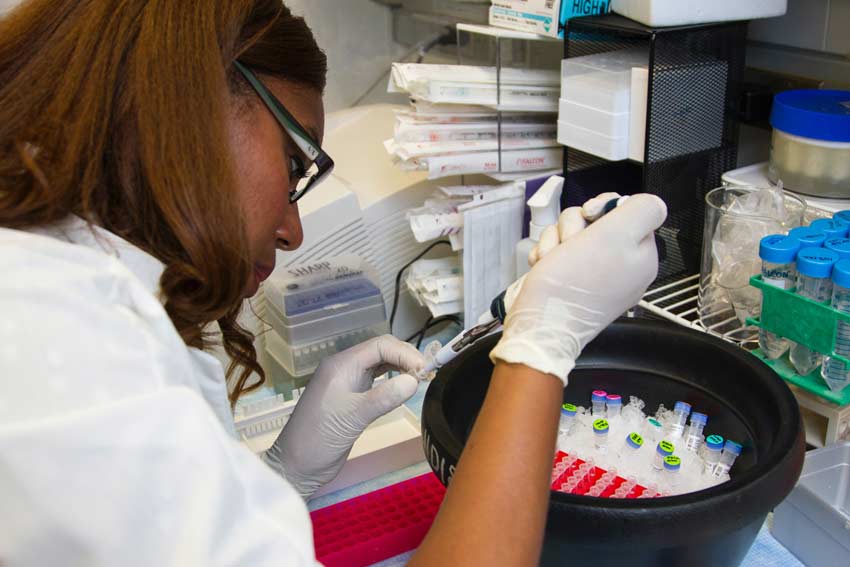
Biomedical researchers employ scientific research to help people live healthier lives. Likewise, they plan experiments to test and develop novel treatment approaches, evaluate medical data to look into infections and chronic diseases, and create social programs to improve population health outcomes.
The benefits of biomedical research have helped everyone in one way or another. Scientists try to better understand the origins and treatments of diseases through the development of new drugs, vaccines, and procedures to prevent or treat diseases, as well as the safety testing of items we use every day.
Contents: Jump to Section
1.1 difference between biomedical researcher and biomedical engineer.
While professionals in both fields require medical knowledge, there is a stark difference between the work they practise. In simple words, biomedical researchers focus on diagnosing, treating and preventing human diseases. To further explain, they are more likely to work with clinical drug trials, which test medications or drug combinations against specific diseases.
Biomedical engineers, on the other hand, develop devices to help those seeking different medical treatments. For instance, a biomedical engineer may design and test an artificial limb, then observe how it performs on actual patients and revise the design as needed.
2. How to Become a Biomedical Researcher in India
This article is a must-read for those curious to know how to become a biomedical researcher in India. To pursue a career as a biomedical researcher, you must take up the science stream (PCMB) in 11th and 12th grade and qualify for the appropriate competitive exam to get admission to a biotechnology or biomedical college. Furthermore, the field requires a significant amount of ideation and research, making it a compelling and well-respected career path.
2.1.1 Courses Taken at School
Physics, chemistry, biology, math.

If you are aspiring to become a biomedical researcher, you must take up the science stream in 11 th and 12 th grade. Physics, chemistry, biology (PCB) is ideal as this career path demands a lot of scientific knowledge. Additionally, taking up mathematics as one of your subjects (PCMB) is also essential to clear JEE entrance exams in India.
Apart from that, mathematics might also be useful in college as some subjects such as genetics, biostatistics, and epidemiology requires calculations.
2.1.2 Courses Taken at College: Biomedical Engineer Course Requirements
Cancer biology, Biostatistics, Human psychology, and more.

It’s always a good idea to know what classes you’ll be studying in college if you’re wondering how to become a biomedical researcher. Therefore, below are some of the subjects I studied and would recommend to students:
- Cancer biology
- Biostatistics
- Human physiology
- Pathophysiology
- Animal tissue culture
- Lab techniques
These topics are certainly beneficial and closely related to the field. Apart from that, depending on the institute where you will be studying, you may be able to take a few other courses.
2.2 Entrance Exams
JEE- Advanced (Joint Entrance Examination – Advanced) and private college entrance exams in India; GRE and TOEFL for international universities.
To study Biomedical Sciences in top Indian colleges like IIT’s that are solely on the basis of merit, you will have to take the Joint Entrance Exam (JEE) after 12 th grade. Also, a lot of other private Indian colleges conduct their own entrance exam to shortlist students. To keep the options open it is always better to give multiple exams and apply to colleges accordingly.
For most international programs you need to take GRE and TOEFL. However, the course tuition is comparatively quite high, although many universities offer financial aid even to international students. Therefore, your willingness to pay the tuition fee, your GRE and TOEFL scores in comparison to other applicants, your academic and professional profile, all play a part in deciding the ultimate college to enroll in.
2.3 Biomedical Researchers Qualifications/ Degree Required

A bachelor’s degree is the initial requirement, especially for pursuing a master’s in biomedical sciences. Specifically, a degree in pharmacology, molecular biology, genetics, biochemistry, or chemistry is recommended for those who want to focus on their desired field from the start. A majority of biomedical researchers have Ph.D. or master’s degrees, as well as extra specialized training.
2.4 License Required
If you’re considering how to become a biomedical researcher, you might be wondering if you need a license to do so. This occupation, however, does not require a professional license to practise. As a result, once a student has completed his degree, they can begin working as a fresher.
2.5 Internship/ Work Experience Required
Highly recommended.

In most universities, it is mandatory to do a six months final dissertation project towards the end of the course in order to successfully graduate. Besides, it is preferable to have internship experience as it provides students with hands-on experience in the field. Also, it improves their chances of being hired by large organizations.
2.6 Cost of Tuition and Training: How Much Does It Cost to Become a Biomedical Researcher?
The tuition fee for an undergraduate degree in biotechnology or biomedical sciences is usually around ₹40,000 for the entire course of 3 years. Of course, depending on the college, it could be more or less.
However, for a postgraduate degree in biomedical sciences, the tuition and training cost in this field is quite high. In the United States, the typical tuition rate for a master’s in biomedical sciences in a reputable university might range from $40,000 to $60,000 per academic year.
Aspirants can also pursue their masters and Ph.D. together. Although, it is advised to complete the Master’s degree first as it can help the student get more research experience, industry exposure, and more time to explore their interests in this field.

2.7 Competition: How Hard is It to Become a Biomedical Researcher?
Very competitive.

This career is exciting with lots of possibilities for lab work, administration, research, education, and consulting. In India, the competition for entrance exams is mid-level. But, due to limited job opportunities, it is highly competitive in this field if you want to become a biomedical researcher.
Whereas in the US, the competition for college applications and for jobs is both of high level as thousands of people, from all around the world apply for the same position.
2.8 General Age to Start Professional Career for Biomedical Researchers
22-25, depending on your education.
Generally, students can start a professional career in this field after graduation. Thereby, having a minimum graduation qualification is necessary to become a biomedical researcher. For the most part, students also pursue their master’s degree as it gives them an edge over other applicants and provides several opportunities to start their career.
2.9 Governing Bodies
No. There is no governing body for biomedical in India.
3. Professional Opportunities/ Career Growth for Biomedical Researchers
3.1 specialisations/ sub-professions.

There are several subfields in biomedical sciences. Listed below are some specializations under it.
- Pharmacology
- Molecular biology
- Genome sciences
- Neuroscience
- Infectious diseases
Once again, I would like to stress the importance of internships and co-ops; gaining experience through them will help you understand and discover your research focus.
3.2 Companies & Institutions that Employ Biomedical Researchers
Professionals in biomedical science have the unique opportunity to work in both the private and public sectors, allowing them to tailor their career paths to their own interests. Generally, research scientists are hired by universities for academic research. They may also be hired by pharmaceutical, and biotech companies.
Besides, some of the top international companies that hire biomedical researchers are Merck, Pfizer, GSK, and Novartis.
3.3 Growth Prospects
Immense growth prospects.

There are many pressing medical problems today that demand the knowledge of biomedical science specialists, from unforeseen conditions like the COVID-19 pandemic to the ongoing aging of the global population.
Therefore, there are tremendous growth prospects in this field. Interesting opportunities have arisen for people with the precise knowledge and skills set pertaining to technical expertise, consistency, networking, and leadership qualities.
Research scientists who portray these skills are promoted to managers, directors, or even vice presidents. Also, they are hired by universities for academic research which is primarily concerned with making new discoveries for the benefit of the scientific community and is funded by the university itself.
3.4 Entrepreneurship Opportunities

There are numerous opportunities for start-ups in this field. The two main subcategories of scope for entrepreneurs are pharmaceuticals and therapeutics.
In pharmaceuticals, clinical trials, pharmacological research, and safety profiles of drugs are all a part of various roles a start-up pharmaceutical company could indulge in.
Whereas in therapeutics, rather than drug development start-up companies can focus on how medications are utilised and administered in the context of disease therapy.
Though both subcategories require a large amount of capital for research and equipment, start-up companies usually raise funds with the help of sponsors and crowdfunding.
3.5 What is the Salary of Biomedical Researchers in India?

4. Further Resources
4.1 top universities in india.
- IITs (Indian Institute of Technology)
- Delhi Technological University
- Vellore Institute of Technology
Generally, graduating from any IIT campus or other esteemed colleges mentioned above will provide students with the opportunity to work in a reputable industry.
4.2 Top Universities in World
- MIT (Massachusetts Institute of Technology)
- Stanford University
- The Johns Hopkins University School of Medicine
- Harvard University
For the most part, graduating from one of these universities will provide students with great job opportunities.
4.3 Famous Personalities
Jennifer Doudna, Feng Zhang, Craig Venter.
Jennifer Anne Doudna is an American biochemist who has contributed significantly to biochemistry and genetics, including pioneering work in CRISPR gene editing. Also, for the creation of a technology for genome editing, she and Emmanuelle Charpentier shared the Nobel Prize in Chemistry in 2020.
Additionally, other amazing women who inspire me are Marie Skłodowska Curie, Jane Goodall, and Kalpana Chawla.
4.4 Useful Links and Resources
Biomed Careers by Glassdoor
Research Paper Writing Service
Curated & Edited by Akarshi Srivastava (CareerNuts Staff)
Biomedical Research Career Path: Is Biomedical Research Good Career?
Is biomedical research career path the right profession for you? Do you think you’ve got what it takes to work in this industry? From challenges to daily tasks, Boston-based biomedical researcher Aishwarya Srivastava discusses everything you need to know about the profession.

Aishwarya Srivastava is a biomedical research associate working in the T-cell process development department at TCR² Therapeutics in Cambridge, Massachusetts. She has a Master of Science in Biomedical Science (MS) degree from Northeastern University. She also has a Master’s in Technology degree in biotechnology (M.Tech) from Padmashree Dr. D.Y Patil Vidyapeeth. She works in the field of immuno-oncology and is passionate about supporting the development of novel therapeutics to help cancer patients through cell therapy. Originally from Mumbai, she currently resides in Boston, Massachusetts. In her free time, she enjoys biking, baking and exploring nature.
Leave a Comment

- Check Suitability
- Publish Article
- Career helpline: 9620234650
How to Become a Scientist in India?
Abhishek - tuesday 7th september 2021 | articles.

Ardent science lovers always have the dream to build their careers as reputed scientists and work at some of the prestigious institutes such as NASA or ISRO.
Are you among those aimers who aspire to be a scientist today and make precious contributions in the field?
You are in the right place then. Becoming a scientist isnt a process with a bed of roses rather involves many adversaries. However, those adversaries aren’t strong enough to stop you if you are determined! You need to have that willpower and desire to achieve what you aspire to today.
Here in this article, we will explain in detail the process of how to become a scientist in India. Read on to know the eligibility criteria, educational qualifications needed to be a scientist. We will also discuss the career prospects as a scientist and their respective salaries.
How to Become a Scientist: Educational Qualification
The first step towards becoming a scientist is specializing in the related field and pursuing a bachelor’s degree in science. The assorted options are Physics, Biology, Mathematics, Chemistry, Geology, and so on. You are even free to pursue B.Tech or B.Pharma in the subject of your choice. However, it is just the foundation towards a bright career as a scientist. After completing your bachelors with flying colors, you will need to go for Masters followed by a Ph.D. degree. Bachelor’s provides you with a piece of strong basic knowledge. Moving further towards something prompt will need you to go for higher qualifications.
Basic Eligibility Requirements to Become a Scientist
- The candidates should possess a bachelor’s degree in science stream from a recognized university with a minimum aggregate of 60% or equivalent sgpa.
- Post-graduation, candidates need to go for masters in the related field. Completing the masters from a recognized institute with at least 65% marks or equivalent sgpa is mandatory.
- After a masters, going for higher qualification like Ph.D. is a must!
Entrance Examinations
Many candidates get directly hired by various reputed scientific institutions from campus placements. Companies like NASA and ISRO hire directly from top-class institutes such as IITs or NIIT. Getting into IITs requires the candidates to crack JEE examination. However, it is not always mandatory to crack JEE to get into IIT. To know details regarding it, you can read it here !
Other popular entrance exams include GATE (Graduate Aptitude Test in Engineering) and IISER Aptitude Test.
Career Options as Scientist
Once you have the desired qualifications, you will be eligible to crack various jobs as a scientist at various top-tier institutes. Some popular career scopes once can have as a scientist are:
- Astronomer - A scientist specializing in the studies of spatial objects like skies, stars, galaxies, holes, and stars.
- Ethologist - A scientist who specializes in the study of animal behaviors in the natural environment.
- Botanist - A botanist is one who studies plant, fungi, and animal biology.
- Agronomist - An agronomist is a plant scientist who specializes in the studies of plant mechanics.
- Cytologist - A cytologist specializes in human cells analysis under a microscope.
- Microbiologist - A microbiologist is an expert in the studies of microorganisms.
- Geologist - Geologists are experts who study about earth: its history, formation, nature, materials, and every minute detail.
- Epidemiologist - Epidemiologists are public health professionals who study diseases among the populations of people.
- Marine Biologist - Marine biologists specialize in the study of ocean life and investigate the behavior and physiological process of marine creatures.
- Meteorologist - Meteorologist specialize in weather studies.
- Seismologists - Seismologists are expert earth scientists specializing in geophysics.
- Paleontologists - Paleontologists specialize in the study of ancient life forms.
Expected Salaries of Scientists
The table highlights the expected national average salary range (per month) of the scientists in the related field. However, the numbers might increase with experience.
Note: The table is based on information from multiple sources and the actual figures may always vary.
Recruitment Processes
There’s a list of entrance examinations conducted by several institutes to recruit suitable candidates for the relevant position. Here are the names of some popular entrance names that you can take as per your preference.
1: CSIR NET JRF Exam
Council of Scientific and Industrial Research (CSIR) is among the top names in the field of science and technology. Candidates first need to join the institute as a junior research fellow to have better chances of landing a job as a scientist. The gateway to enter CSIR is through the CSIR NET JRF examination. The candidates must have B.Tech/B.E./M.Sc in related fields to be eligible to appear for the examination.
2: ISRO Scientist Recruitment
One of the top-tier names in the science field is the Indian Space Research Organization (ISRO). Candidates can land a job as a scientist after cracking the ISRO Recruitment process. Students also get hired from direct campus placement at ISRO from top institutes like the IITs, NIIT, etc. Candidates can also take the ICRB exam i.e., Centralized Recruitment of the Department of Space and Indian Space Research Organization to crack a job at the ISRO. Aspirants with a related degree in the science/engineering stream with at least 65% marks are mandatory to be eligible for the examination.
3: NASA Scientist Recruitment
It is a dream for millions of aspirants to become a scientist at NASA. Candidates can place their applications through different scholarship programs offered by the institute. The basic eligibility requirement includes a masters degree in science. Candidates with a doctorate degree have high chances to directly land a job as a scientist at NASA.
How to Become a Medical Scientist?
Candidates who aspire to be a Medical Scientist need to have a bachelor’s degree in Biology/Chemistry or in a related field. After completing their graduation in the respective field, aspirants need to go for masters followed by Ph.D. Pursuing dual-degree programs to learn clinical and research skills is a big bonus! Some of the courses linked with Ph.D. programs are Medical Doctor (M.D.), Doctor of Dental Surgery (D.D.S), Doctor of Dental Medicine (D.M.D.), Doctor of Osteopathic Medicine (D.O.), and advanced nursing degrees.
How to Become a Data Scientist?
One of the booming career options as a scientist is the Data Scientist. However, cracking a successful career as a Data Scientist needs staunch hard work and dedication. The minimum eligibility requirement to be a Data Scientist is to have an M.Sc degree in Mathematics. Other additional skills needed are:
- Expert in coding and programming skills.
- Expert in Statistical analysis.
- Efficiency over technical tools like Saasm Tableau, Rapid Miner.
- Excellent data intuition and brilliant understanding of Machine Learning algorithms like Python, Logistic and Linear Regression.
Top-Tier Institutes Hiring Scientists
Besides NASA or ISRO, there are other top names that recruit quality candidates as scientists. Here are the names of those institutes where you can land a job as a scientist after successfully completing your higher studies.
- Indian Institute of Tropical Meteorology (IITM)
- Tata Institute of Fundamental Research (TIFR)
- Bhabha Atomic Research Centre (BARC)
- Indian Council of Agricultural Research (ICAR)
- Defense Research and Development Organization
- Indian Association of Cultivation Sciences (IACS)
- Aryabhatta Research Institute of Observational Sciences (ARIES)
Best Books to Follow to Prepare for Entrance Exams/Recruitment Processes
Cracking a job as a scientist isn’t a cakewalk and you need years of hard work and a supreme level of dedication. Therefore profound knowledge in the related field is necessary to clear the recruitment or entrance examinations easily. Here we have listed a bunch of the best books in the market that you can follow to expand your knowledge and continue to prepare for the examinations simultaneously.
The names of the best books arent limited to this list. These are some of the top ones in the market that we recommend. You should always read as much as you can because knowing and learning know no boundaries. Before choosing a book be careful with the following things:
- It has an easy-to-understand and comprehensive language.
- The concepts are covered in detail with minute attention to the core subject areas.
- Every chapter is complemented by practice sets or exercises to evaluate the understanding of the candidates.
PRO-TIP
Landing a career so prestigious and worthy, won’t happen in a day. Hours of hard work, years of dedication, and strong determination towards your goal can lead you to do what you desire. Be focused on your aim and never deviate yourself. Even at times if you feel down, remember the one thing ‘The mission is yet to be achieved!’
- Read a lot and make notes. Always be in the habit of writing.
- Never miss the mock tests before entrance examinations. Because it is only through the practice tests that you get to experience a practical insight before the final exams.
- Be confident and stay positive even amidst stressful hours.
Wrapping Up
This was all about how to become a scientist in India and I hope this guide helps you to understand the major details related to it. We wish you all the best in your upcoming endeavors.
Let's Connect
Lets help you discover your perfect career!
Write your Comment:
Reviews - how to become a scientist in india, check your career suitability, suggested posts.

Confused with your trade? Career Counselling is all you need

Career Counselling in school-Nip the career dilemmas right in the bud!!

Where do Parents stand when it comes to selecting career for their children

How do I find good career path and utilize my time and energy?

How should I choose my career?

Why is career counseling important in India?
Popular posts.

What is Counselling ? Definition, Types & Process

What are the commerce subjects in class 11, 12

How to Get into IIT - 2021 Guide
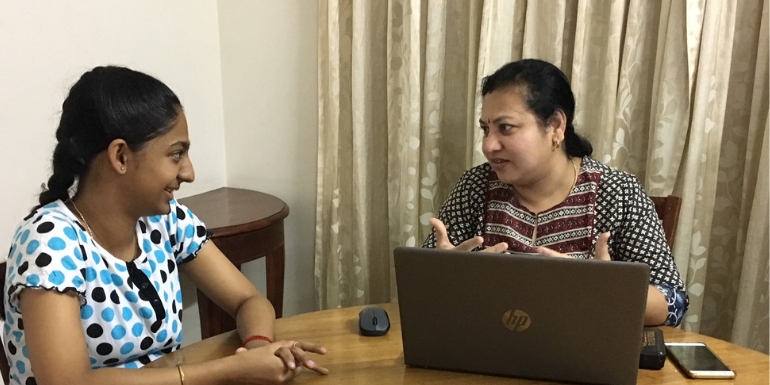
Success Story: How this IT professional became a Top Notch Career Counselor
Blog categories.

Impact Stories

Become a career counsellor
Check your career suitability now.
How To Become A Scientist In India? Eligibility & Career Opportunities
Become a Scientist in India: If you are a naturally curious person, loves science as a subject, and are always…
Continue reading...
May 13 2021 by Aarti Sharma
Become a Scientist in India: If you are a naturally curious person, loves science as a subject, and are always ready to explore new fields, you may enjoy a career as a scientist. Learning about the role of scientists and the steps to be taken to become one can help you decide if this career is the right fit for you. The very first thing you need to understand to become a scientist is to understand that it is more than some degree or qualifications. Becoming a scientist is not similar to becoming a doctor or engineer.
Scientists observe their surroundings, do research and come up with new ideas. Indeed, it is not an easy task to become a scientist. Successful scientists are often the ones whose area of study becomes their all-time obsession. You must be passionate about your field of study and the results will be rewarding. It is a very well reputed and promising career which demands passion for the work. Read on to know the basic guidelines to become a scientist in India.
Error: Contact form not found.
ALSO CHECK: Forensic Science Courses In India: Eligibility | Top Colleges | Jobs
How To Become A Scientist In India?
Where you can work as a scientist.
The best thing to do is to start your preparation in high school itself. Opting for a science stream is an obvious step but the choice of field is also very important as you’ll have multiple options as a scientist, among which you need to acquire expertise in any one field. At the high school level, choose between a combination of PCB (Physics, Chemistry, Biology) and PCM (Physics, Chemistry, Mathematics) as per your interest.
Get Specialization in your field: Pursue Higher Education
Now that you have decided on your specific area of study, you attain bachelor’s and master’s degrees in that field. There are numerous options available for the same. For example:
- Graduation: Bachelor of Science (B.Sc), B.tech in relevant field.
- Post-graduation: M.Sc, M.E., M.tech or master’s degree in relevant field.
Selected your study area keeping available options in mind like Physics, Mathematics, Astronomy , Geology , Biology, etc. After your master’s, you can go for a doctorate (PhD) in your chosen field of study. You can apply for a fellowship along with a PhD which will support you financially during your research.
Career Opportunities: Where to work as a scientist?
With the advancement in sciences and technology every day, the demand for scientists is not going down. In fact, the world will always need scientists. They are important for the progress of humanity. Scientists are required in the field of agriculture, space, mining, defense, physical science, data science, engineering, technology, medical sciences, and many more. Both private and public sector offers job opportunities for scientists. Following are some organizations that provide employment opportunities to scientists:
- ISRO (Indian Space Research Organization)
- BARC (Bhabha Atomic Research Centre)
- DRDO (Defense Research and Development Organization)
- TIFR (Tata Institute of Fundamental Research)
- CSIR( Council of Scientific & Industrial Research)
- ICAR (Indian Council of Agricultural Research)
- IITM (Indian Institute of Meteorology)
- IASC (Indian Association for Cultivation of Science)
- ARIES (Aryabhatta Research Institute of Observational Sciences)
- ASI (Archeological Survey of India)
- Indian Air force
ALSO CHECK: Science Success Guide After 12th (E-Book): 100+ Futuristic Career Options
Admission Process to Become a Scientist in India
In India, admission to these courses is either on a merit basis or entrance exams. After getting shortlisted for admission, some colleges also conduct further selection rounds like group discussions and personal interviews. Some of the popular entrance exams in India are:
- JEE ( Joint Entrance Exam ) Main
- JEE Advanced
- GATE ( Graduate Aptitude Test in Engineering )
- IISER aptitude test
Some of the best colleges for science in India that provides quality education are:
- Indian Institute of Technology (IITs)
- National Institute of Technology (NITs)
- Indian Institute of Space Science and Technology (IIST)
- Indian Institute of Science (IISc)
- Indian Institute of Science Education and Research (IISER)
Salary of a Scientist in India
After completing your studies at a reputed institute like IIT, you can earn around 5-6 lakh INR per annum in the beginning. With more academic qualifications, skills, learning, and work experience, the earning potential increases and there is no upper limit to what one can earn.
A learning mindset, scientific aptitude, patience, keen observation, curiosity, and staying up to date are some skills that will be an asset for your career as a scientist. The earlier you start working on these skills, the better it gets. All the best!
Become a Scientist in India: Frequently Asked Questions (FAQs)
- How can I become a scientist in ISRO?
ISRO recruits scientists from IIST, IITs, or NITs. It also conducts ISRB exams for recruitment.
ALSO CHECK: Natural Science Courses: Eligibility | Best Colleges | Job Prospects
- How can I become a data scientist?
For becoming a data scientist, you must have an M.Sc degree in Mathematical Statistics along with coding skills, statistical skills, understanding of machine learning, etc.
- Is a scientist a good career option?
If you are genuinely interested in your field of study and have the right skills, then definitely, yes!
Share this:
- Click to share on LinkedIn (Opens in new window)
- Click to share on Pinterest (Opens in new window)
- Click to share on WhatsApp (Opens in new window)
- Click to share on Telegram (Opens in new window)
- Click to share on Twitter (Opens in new window)
- Click to share on Facebook (Opens in new window)
- 14 Best IGCSE Schools In India: Mumbai, Noida, Dehradun & More
- MBA vs MCom: Scope of Master Degrees In India
- MBA In Operations Management In India: Eligibility | Colleges | Jobs
- MBA Preparation: Exam | Syllabus | Institutions | Abroad
- MBA After Graduation Or MBA After Job? When To Do MBA?
- MBA vs UPSC: Eligibility | Universities | Courses | FAQs
- MBA Finance Abroad: 6 Ways To Finance Your MBA Abroad
- MBA Entrepreneurship Course: Eligibility | Best Colleges | Jobs
- Best Scholarships For MBA Students And Eligibility
- Which Engineering Is Best? The Best Engineering Branch In India
- Software Engineering Courses After 12th: Degree & Diploma
- Agricultural Engineering In India: Courses | Eligibility | Job Prospects
- Sound Engineering Course: Eligibility | Best Institutes | Job Prospects
- Mining Engineering Course: Eligibility | Best Colleges | Job Prospects
- Paper Engineering Course: Eligibility | Best Colleges | Job Prospects
- Doctorate Of Medical In Oncology Course: Eligibility | Colleges | Scope
- Best Scholarships For Medical Students And Eligibility
- Pick Your Book: MBA, Engineering, Medical, Competitive Exams & More
- Biomedical Science Course In India: Eligibility | Institutes | Scope | FAQs
- All About MBBS: Specialisations | Exams | Top Colleges | FAQs
- Other Courses
- Sarkari Exams
- Important Updates
- Study Abroad
Automated page speed optimizations for fast site performance
How to Become a Scientist in India After 12th | A Career Guide

Are you love science very much? And want to make your career in science as a scientist? If yes, you are in right place. This article will tell you about How to Become a Scientist in India .
So let’s get started it.
Scientific research and development are one of the most demanding and rewarding jobs in the world. Science plays an increasingly important role in our daily lives.
Being a scientist is the most exciting career in the modern world. There are huge numbers of opportunities for students to develop their skills and knowledge in this field.
Let's find it...
Who is a scientist?
Most people would probably agree that a scientist is a person who studies the natural world and finds things out.
But the word of scientists is not limited to this, it is also beyond it.
For example:
In science, the word scientist is used as a synonym for natural scientist . On the other hand, In psychology, people use the term to refer to someone who studies human behavior . In the humanities, the word scientist means a person who studies human behavior, cultural, environmental, economic, and political contexts .
Note: Don’t be confused between scientist and researcher. We’ll talk about it further.
A scientist is a person who seeks the truth, and also seeks to understand it using the scientific method. A person who questions everything can also be a scientist.
A scientist is a person who finds something fascinating, and who spends their life figuring out exactly how it works.
If you want to become a scientist, first of all, you have to decide which field (subject) you want to become a scientist.
Remember, it is very important to have an interest in whatever decision you take.
Difference between scientist and researcher
Usually, we think of researchers and scientists as the same but in reality, they are two different professions.
Before you are ready to become a scientist in India, it is very important for you to understand the difference between a scientist and a researcher.
- A scientist wholly conducts research on subjects related to science. Whereas a researcher does research on non-scientific subjects like literature, education, social science, religion, etc.
As in the first example, the person who studied philosophy and humanities was given the status of scientist by us but this is not entirely true. A person studying non-scientific subjects is given the status of researcher and not scientist .
A scientist can be a researcher but a researcher can’t be a scientist.
- The biggest difference between a scientist and a researcher is that a scientist conducts a systematic and organized investigation on a problem whereas a researcher uses scientific methods to find a solution to a particular problem.
3 steps to become a scientist in India
Many people have a fascination for science and want to become scientists. But they have some questions related to becoming a scientist .
Like- How to become a scientist? What does it take to become a scientist? What subjects would one study to become a scientist?
All your questions will be answered in the following 3 steps on how to become a scientist in India.
Step 1: Select a field of study
If you want to become a scientist. So you should choose the niche of your choice and narrow it down to a particular niche that what kind of scientist you want to become.
Now you have to take the decision according to your dream (Niche). Like you have to take PCM or PCB in Science stream after passing 10th.
Note: To become a scientist you must be good at maths because in research you may always need statistics and basic maths.
Step 2: Select a university and degree program
Now whatever niche you have decided to pursue ( Physics, Mathematics, Biology, Social Sciences, Geology, Astronomy ).
In that, you have to select a Bachelor’s degree program like B. Tech, B.Sc, B. Pharma etc. And get specialization in that field.
Step 3: Pursue Higher Qualifications
To become a scientist, you need to have a bachelor’s degree and then a master’s degree . For better scope, you need to have a doctorate ( Ph.D. ) in a specific subject.
You can apply for a fellowship during your research which will help you financially to complete your research.
Qualification to become a scientist in India
To become a scientist, it is very important for the candidate to have some basic qualifications, which are as follows.
- The candidate must have completed his graduation degree from a well reputed college and university.
- Candidate must have Bachelor’s degree from Science stream only.
- Candidate must have scored at least 60% marks in their Bachelor’s degree (graduation)
- Similarly, 60 to 65% marks must be obtained in post graduation also.
- Ph.D. holder candidates get preferences and advantages to become a scientist.
Required skills to be a scientist in India
Anyone can fulfill the basic qualification required to become a scientist. But to become a successful scientist it is necessary to have some key skills which are as follows.
- The first thing every scientist needs is curiosity . Scientists find themselves in situations where they need to figure things out as quickly as possible.
- The second thing is patience .
- The third thing every scientist needs is persistence . Scientists get interrupted all the time. They spend years working on something that turns out to be a dead end. So you should be firm towards your work.
Type of roles of the scientist
The following are the different types of jobs role that a scientist can assume according to his interest, expertise, and specialization. You can choose any one role according to your interest and dream to become a scientist in India.
- An agronomist specializes in soil and crops.
- An astronomer studies outer space, stars, planets, and galaxies.
- A botanist who specializes in botany studies plants.
- A cytologist specializes in the study of cells.
- A chemist is a scientist specializes in chemistry. They probably study a specific field of biology like biochemistry, which is about the chemical properties of living things.
- An ecologist studies ecosystems, or the environment that we live in.
- An epidemiologist studies the spread of diseases.
- An ethologist studies animal behavior.
- A geneticist studies how traits are inherited.
- A geographer studies Earth’s surface.
- A geologist specializes in the history of Earth.
- A marine biologis t studies ocean plants and animals.
- A microbiologist studies microscopic plants and animals.
- A meteorologist studies weather and climate. Microbiology doesn’t tend to include the cells of bigger animals, just microorganisms that live by themselves.
- A physicist studies matter, energy, and how they are related.
- A paleontologist specializes in fossils.
- A seismologist studies earthquakes.
- A zoologist studies zoology, the study of animals.
Entrance exam to become a scientist in india
There are many such entrance exams, after cracking which you will get a chance to do your graduation and post-graduation degree from a good college.
But before you start preparing for them, you have to select a perfect entrance exam according to your dream .
The following are the most common entrance examinations in India, arranged by preference:
- JEE (Joint Entrance Exam)
- JEE advanced
- GATE (Graduate Aptitude Test in Engineering)
- IISER Aptitude test
Where you can work as a scientist in India?
Now a question must be coming to your mind that after fulfilling all these qualifications and skills, which is the organization in India that recruits the candidate as a scientist?
So, Here’s your answer:
You can work in laboratories and r esearch institutions , universities, and colleges. These are some of the places where you can try your luck as a scientist:
- Indian Space Research Organization (ISRO)
- Defense Research and Development Organization (DRDO)
- Indian Institute of Tropical Meteorology (IITM)
- Tata Institute of Fundamental Research (TIFR)
- Bhabha Atomic Research Centre (BARC)
- Aryabhatta Research Institute of Observational Sciences (ARIES)
- Indian Council of Agricultural Research (ICAR)
- Council of Scientific & Industrial Research (CSIR)
- Indian Association for Cultivation of Science (IACS)
If you are interested in Space science, then Indian Space Research Organization is a good option for you. You can also join Defence Research and Development Organisation or Central Drug Standard Control Organisation as a research scientist.
If you have more interest on development of science and technology, then you can prefer Indian Council of Medical Research (ICMR) or National Science Foundation.
It is not necessary that you work in a research lab after doing science; There are also many other options like teaching at the college/university level where your subject will be the same in which you have specialized.
Best books and study material to become a scientist
There are several books on the market for scientists. Here are some popular books compiled by our specialists after examining other study resources. You must read these books and study material if you have a dream to become a scientist in India.
- Philosophiae Naturalis Principia Mathematica (Mathematical Principles of Natural Philosophy) by Isaac Newton
- The Pleasure of Finding Things Out by Richard P. Feynman
- A Brief History of Time by Stephen Hawking
- The Elegant Universe by Brian Greene
- Encyclopedia of Space Science and Technology by Maureen Salkin, Hans Mark Publication.
- Microbiology: Principles and Explorations by Jacquelyn G Black
- Measuring Behaviour by Patrick Bateson and Paul Martin
- Elements: A Visual Exploration by Theodore Gray
- The Story of Earth by Robert M. Hazen
- The Greatest Show on Earth by Richard Dawkins
- Modern Epidemiology by Kenneth Rothman
- The Origin of Species by Charles Darwin
- When Life Never Died by Michael J. Benton
There are many scientists in the world who contribute to society and make a difference. If you have a love for science and want to become an expert in your field, there are many ways to get started. We’ve already discussed outlined the 3 steps it takes to be a scientist in India.
The first step is deciding where you want to work as a scientist; there’s no shortage of options for those qualified so go ahead and start exploring right away!
Next, research the qualifications necessary for that particular position before taking any entrance exam or pursuing further education requirements.
And finally, read up on supplementary materials like books and articles about how science works – we’ve included some great suggestions at the bottom of this post just for you!
If you also want to make your career in Science, then you should choose it as your aspiration in life.
Qualifications include being dedicated and passionate about your chosen subject, having good communication skills, and being able to work well with others or alone on projects that interest you.
You may need special training before entering into the workforce as a researcher– but if not, don’t worry! There’s still plenty of opportunities out there for those who dream of becoming scientists one day. You can also find your own way for this.
Don’t forget to share this article with your friends so that they can also know about how to become a scientist after 12th.
Happy your science journey:)
7 Easy Ways To Make Money Online
Download Now & Start Making Money Online
Your E-Book in Your Inbox: Check Now

IMAGES
VIDEO
COMMENTS
An entry-level Junior Research Scientist salary in India ranges between Rs 2.0 Lakhs to Rs 9.8 Lakhs with an average annual salary of Rs 5.0 Lakhs per annum. Junior Research Scientist in India may vary depending on the various job factors like the skills and experience of the candidates, job location, and others. Salary Source: AmbitionBox
To become a scientist, candidates can pursue PhD degrees in relevant subjects from the top PhD Colleges across India and globally. There are several Types of Scientists based on their area of work and specialization, such as Biologists, Physicist, Astrophysicists and Biochemists . It takes around 7-10 years or even more to become an established scientist in a respective field.
Average time Taken to become a Scientist. A BSc degree normally takes 3 years to finish, whereas integrated programs may take 5 years.A master's degree typically takes two years to complete, whereas a doctorate program takes three to four years.Furthermore, reputable laboratories, research centers, and teaching roles may demand a few years of work experience.
The basic eligibility to be a scientist is as follows: Candidates must have a bachelor's degree from a reputed college or an institution. Graduation must necessarily be in the field of science. Candidates are required to score a minimum of 60% in their graduation. In the case of a master's degree, candidates must score a minimum of 65%.
Check out the following steps to learn the process of becoming a scientist in India: Step 1: Identify Skills. Step 2: Acquire a Bachelor's and Master's Degree. Step 3: Gain Relevant Work Experience. Step 4: Pursue a Doctorate Degree. Step 5: Opt for a Specialised Certification. Step 6: Look for Job Opportunities.
6. Ramanujan Fellowship. The fellowship is meant for brilliant scientists and engineers from all over the world to take up scientific research positions in India, i.e. for those scientists who want to return to India from abroad. The fellowships are scientist-specific and very selective.
These are the basic steps you can follow to become a scientist: 1. Obtain a bachelor's degree. There are several prominent institutes that offer undergraduate courses in science and technology. It is common for these institutes to require you to complete the JEE (joint entrance examination).
The average salary per annum for a research scientist in India starts from INR 8 lakh /-Y . Adding to this, with growth in years of experience, research scientists can level up their career and eventually become Senior Research Scientists as well as Adjunct Research Scientists and receive an equal rise in pay and benefits.
The duration to become a research scientist in India can vary. It typically takes around 5-7 years to complete a Bachelor's and Master's degree and another 3-5 years to obtain a Ph.D. However, the timeline may vary depending on individual circumstances and research progress. 3. What are some funding options for research scientists in India?
Learn how to become a Research Scientist, what skills you need to succeed, how to advance your career and get promoted, and what levels of pay to expect at each step on your career path. Explore new Research Scientist job openings and options for career transitions into related roles. Read more.
Research is crucial to bring effective products and services to the market that can divert the attention of audiences with its high efficiency and effectiveness. Research opportunities are vast in all the fields of science and technology, finance and social sciences. Scroll down to know how to become a researcher in India.
Path to Become a Scientist. PhD, Postdoc, Professors, the path most traveled…. A common path to becoming a scientist is to pursue an undergraduate degree, get a master's, pursue a PhD, get ...
On average, the salary of Research Scientists can earn around ₹400,000 to ₹800,000 per year. Courses to Become Scientist. Becoming a scientist, whether in India or abroad, can be achieved through various qualification pathways. Aspiring students are required to successfully complete multiple courses on their journey to becoming a scientist.
3.1 Step 1- Complete Your 10+2 with Biology as a Major Subject. 3.2 Step 2- Choose a Bachelor's or Master's Degree. 3.3 Step 3- Gain Work Experience or Pursue a Doctoral Degree. 4 Benefits of Becoming a Bio Scientist in India. 5 Eligibility Criteria. 6 Top 5 Courses to Become Bio Scientist in India. 7 Top 5 Colleges in India to Study ...
Scientists involve themselves in different fields to explore and invent new things. Students having an interest in biology can become botanists or ethologists. Those who find the history of earth interesting can become a geologist. Also, students who love the sea and underwater animals and plants can become a marine biologist. As you can see there are a lot of options in the science field ...
This will be a crucial step for advancing your career. Graduate degree: Upon completing a bachelor's degree, students are eligible to further study in a post-graduate program. From here on, students can begin to research and conduct in-depth studies. A lot of opportunities open up for those having a master's degree.
Thinking about the career options after 12th?In this video, I have tried to give you guys a brief summary of how to become a scientist in India.This video in...
Physics, chemistry, biology, math. If you are aspiring to become a biomedical researcher, you must take up the science stream in 11 th and 12 th grade. Physics, chemistry, biology (PCB) is ideal as this career path demands a lot of scientific knowledge. Additionally, taking up mathematics as one of your subjects (PCMB) is also essential to ...
The first step towards becoming a scientist is specializing in the related field and pursuing a bachelor's degree in science. The assorted options are Physics, Biology, Mathematics, Chemistry, Geology, and so on. You are even free to pursue B.Tech or B.Pharma in the subject of your choice. However, it is just the foundation towards a bright ...
Here are the basic steps on how to become a medical researcher: 1. Get a bachelor's degree. After completing higher secondary education, consider getting a bachelor's degree. You can get a bachelor's degree in chemistry, biology or another science-related field like life sciences, physical sciences or mathematics.
There are numerous options available for the same. For example: Graduation: Bachelor of Science (B.Sc), B.tech in relevant field. Post-graduation: M.Sc, M.E., M.tech or master's degree in relevant field. Selected your study area keeping available options in mind like Physics, Mathematics, Astronomy, Geology, Biology, etc.
Step 3: Pursue Higher Qualifications. To become a scientist, you need to have a bachelor's degree and then a master's degree. For better scope, you need to have a doctorate ( Ph.D.) in a specific subject. You can apply for a fellowship during your research which will help you financially to complete your research.
Obtain a bachelor's degree. Complete a master's degree. Gain experience. Pursue certifications. Consider a doctorate. 1. Obtain a bachelor's degree. Aspiring research scientists should start by pursuing a bachelor's degree that's relevant to the field they're most interested in.